Időrend
1868. június 18.
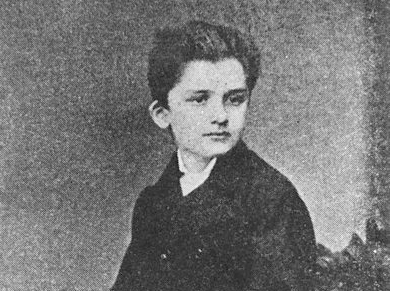
Horthy Miklós születése Kenderesen.
1882.
Horthy Miklós csatlakozik az osztrák-magyar hadsereghez
1889 november
Horthy Miklós sorhajóhadnagyi előléptetése.
1901
Házasságkötés jószási Purgly Magdolnával.
1909.
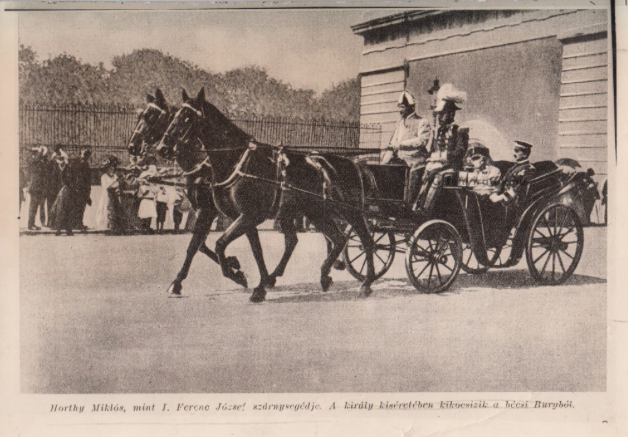
Megkezdi szolgálatát Bécsben Ferenc József császár szárnysegédjeként.
1918 március 1.
Horthy Miklós az Osztrák-Magyar Monarchia flottaparancsnoka.
1918. október 17.
Magyarország kikiáltja függetlenségét
1918. november 11.
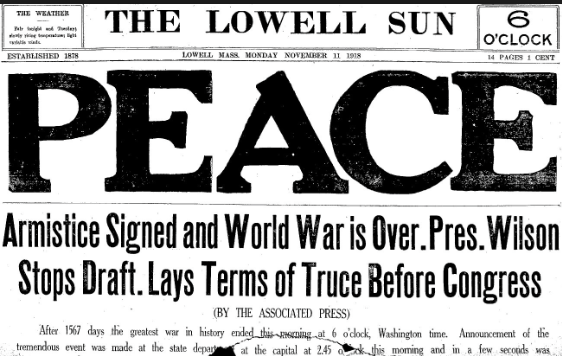
Végetér az Első Világháború
1919. március 20.
Vix francia alezredes átadja Magyarország képviselőinek a békekonferencia által meghatározott új demarkációs vonalak jegyzékét, melyek előjelezték a békeszerződés aláírása utáni...
1919 március 21
A magyar kormány elutasítja a Vix jegyzékben foglaltak aláírását. A szociáldemokrata és a kommunista párt tárgyalásainak eredményeként a két párt...
1919 április 3
Életbe lép a közép-és nagybirtokokat államosító rendelet
1919 április 12
Bethlen István gróf vezetése alatt Bécsben megalakul az antibolsevista comité
1919 április 26
Csehszlovák csapatok lépik át az ország északi határát
1919. április 30.
Román csapatok nyomulnak előre a Tisza vonaláig
1919 május 5
Károlyi Gyula ellenkormányt alakít Aradon
1919 május 30
A Vöröshadsereg hadjáratot indít az északi területek visszasszerzésére
1919. május 30.
Az aradi ellenkormány és az antibolsevista comité egyesülésével Szegeden Károlyi Gyula vezetésével kormány alakul. A kormány hadügyminiszteri posztjára Horthy Miklóst...
1919 június 12
Horthy Miklós lemond a Károlyi-kormány hadügyminiszteri posztjáról és átveszi a Nemzeti Hadsereg vezetését Fővezérként
1919 június 18-24
Ellenforradalmi felkelések a Duna-Tisza közén. Válaszul a kommunista párt különítményesei, Lenin fiúk megtorló körutakba fogtak.
1919. július 20.
A Vöröshadsereg támadást indít a Tiszántúlt megszálló románokkal szemben
1919. augusztus 1.
A román hadsereg átlépi a Tiszát és Budapest felé nyomul előre, a Tanácsköztársaság megbukik, vezetői elmenekülnmek az országból
1919. augusztus 4.
A román hadsereg bevonul Budapestre, s a Duna-Tisza köze északi részére
1919. augusztus 9 - 1919.november 16.
A Nemzeti Hadsereg Szegedről Siófokra teszi át székhelyét. Útban új főhadiszállása felé a különítményesek az Alföldön, a Duna-Tisza közén, majd...
1919. november 16.
Horthy Miklós a Nemzeti Hadsereg élén bevonul Budapestre
1920. február 4.
A szövetséges hatalmak nevében a párizsi székhelyű Nagykövetek Tanácsa határozatot hoz, mely szerint egy Habsburg visszatérése akár a magyar, akár...
1920. március 1.
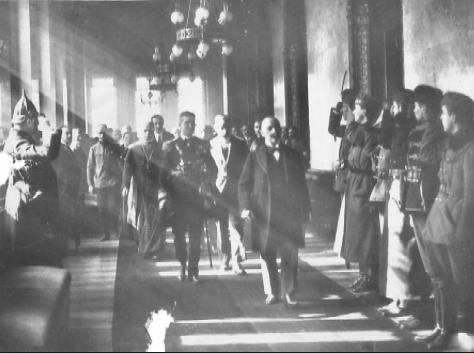
Horthy Miklóst a parlament Magyarország kormányzójává választja.
1920. június 4.
A Simonyi-Semadan Sándor miniszterelnök vezette kormány két tagja a Versailles-i Nagy-Trianon kastélyban a Magyar Királyság részéről aláírja az I. Világháborút...
1920. július 19.
Teleki Pál miniszterelnökségével új kormány alakul.
1920. szeptember 26.
A magyar numerus clausus törvény. ( 1920/ XXV tc.) A határontúli egyetemek elszakadása, s a fővárosi felsőoktatási intézmények túlterheltsége okán...
1921. április 6.
Törvény az „állami és társadalmi rend hatályosabb védelméről” ( 1921/III. tc.), mely betiltja a szélsőséges jobb és baloldali politikai pártokat....
1921. április 14.
A király Magyarországon tartózkodása során végig bizonytalan Teleki Pál miniszterelnök lemond. Horthy Miklós Bethlen István grófot kéri fel kormányalakításra.
1921. október 4.
Prónay Pál és Rongyosgárdája kikiáltják az általuk elfoglalt nyugat-magyarországi területek függetlenségét, s önálló államot hoznak létre Lajtabánság néven. Az antant...
1921. október 20.
IV. Károly király másodjára is visszatér Magyarországra, ezúttal elkészülve arra, hogy katonai erővel állítja vissza hatalmát. Lassú előrenyomulása, s tisztjeinek...
1921. november 6.
A magyar parlament határozatot hoz „Őfelsége IV. Károly király uralkodói jogainak és a Habsburg-ház trónörökösödésének megszüntetéséről.” ( 1921/ XLVII. tc),...
1921. december 14 – 16.
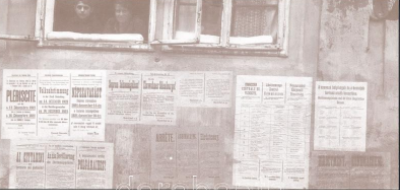
Sopron és nyolc magyar város népszavazással dönt hovatartozásáról. Sopronon kívül a Magyar Királyság része marad: Nagycenk, Fertőbozon és Kópháza.
1921. december 22.
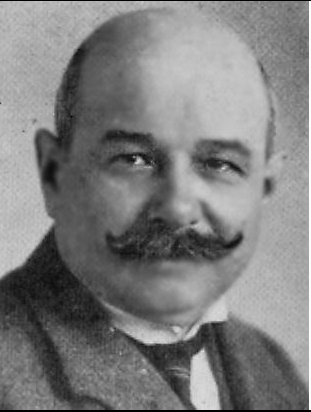
Bethlen István miniszterelnök és a Magyar Szociáldemokrata Párt megállapodást ír alá. A Bethlen-Peyer paktumként elhíresült megegyezés értemében a Szociáldemokrata Párt...
1922. május 8., június 12., június 13., június 15.
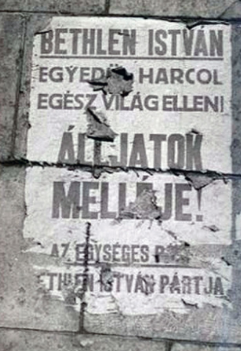
Országgyűlési választások, az új választójogi törvény értelmében 215 egyéni kerületből 195-ben nyílt szavazással. A legtöbb mandátumot a Bethlen István vezette...
1922. augusztus 23.
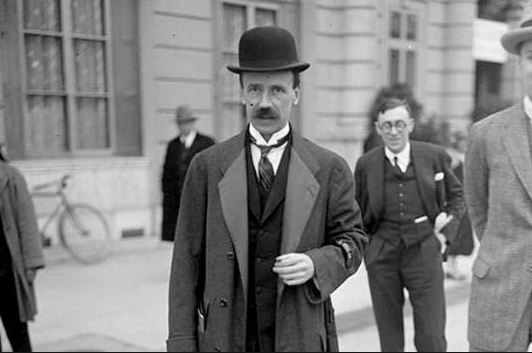
Magyarország felvételét kéri a Nemzetek Szövetségébe, melynek szeptember 18-án tagjává válik.
1923. április 6.
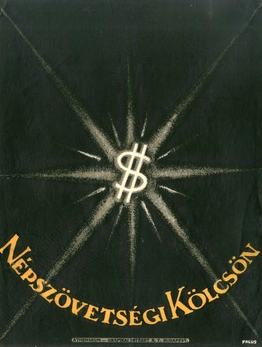
Magyarország kölcsönt kér a Jóvátételi Bizottságtól. Angliai szorgalmazásra a 20 évre 2050 millió aranykoronában megállaptiott kölcsönt a kormány teljes egészében...
1924. május 20.
Kihirdetésre kerül a magyarországi középiskolai rendszert megreformáló, és differenciáló 1924/XI. tc.
1924 szeptember
magyar és szovjet diplomaták megegyezéseket írnak alá Berlinben, a kereskedelmi, s a diplomáciai kapcsolatok helyreállításáról. Ideológiai okból ezeket azonban a...
1926. március 24.
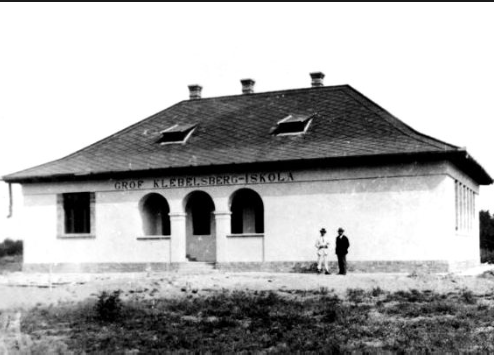
Klebersberg Kúnó vallás és közoktatási miniszter előterjesztésére törvény születik a „mezõgazdasági népesség érdekeit szolgáló népiskolák létesítésérõl és fenntartásáról” ( 1926...
1926. november 15.
A magyar nemzetgyűlés „Az országgyűlés felsőházáról” címet viselő határozatában / 1926/ XXII. tc / visszaállítja a kétkamarás parlamentet.
1926 .december 2.
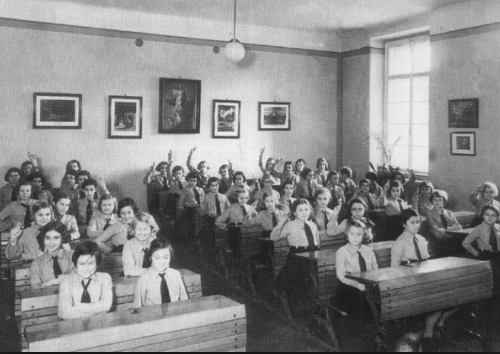
A magyar nemzetgyűlés Klebersberg Kúnó vallási és közoktatási miniszter előterjesztésére törvényt hoz a lányközépiskolák megreformálásáról „a leányközépiskoláról és a leánykollégiumról”,...
1927. január 1.
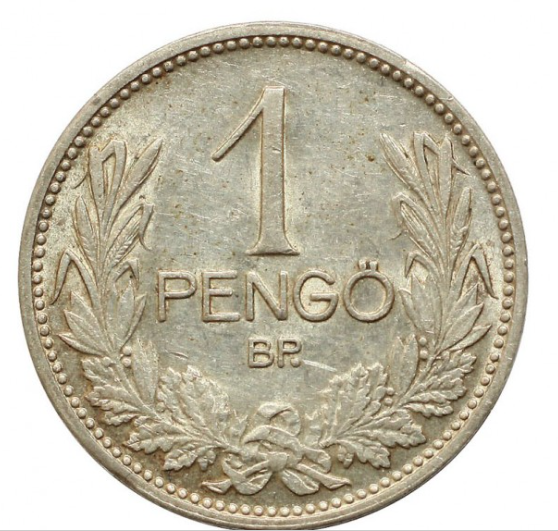
Az elinflálódott korona helyett új pénznem kerül forgalomba, a „Pengő”.
1927. április 5.
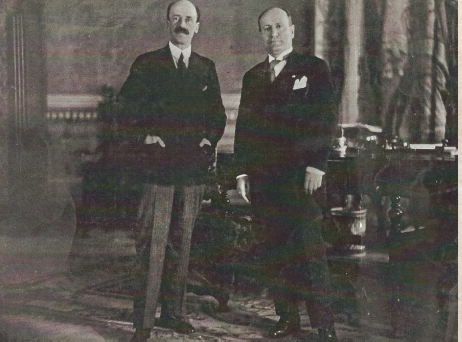
Bethlen István magyar miniszterelnök és Benito Mussolini olasz kormányfő ( azaz az első világháború győztes országai egyikének vezetője ) Rómában...
1928. augusztus 4.
Hatályba lép az ( 1928/XL. Tc. ) „az öregség, rokkantság, özvegység és árvaság esetére szóló kötelező biztosításról” szóló törvény.
1928. november 30.
Lengyel-magyar döntőbírósági szerződés aláírása Varsóban.
1929. október 18.
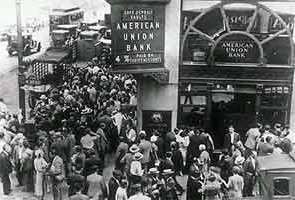
„ A New York-i tőzsde fekete csütörtöke” – A világpiaci túltermelési válság kulminál. A New York-i tőzsdén egy nap alatt...
1930 június
Bethlen István miniszterelnök Londonban újabb népszövetségi kérelmet terjeszt elő Londnoban, a tervet azonban az angol pénzügyi körök – az esetleges...
1930. szeptember 1.
A válság következtében Magyarországon 1930 első felére 35%-ra emelkedik a munkanélküliek száma. A Szakszervezetek Tanácsa és a Magyar Szociáldemokrata Párt...
1931. június 1.
Mivel a kormányt egyre több támadás érte, Bethlen István miniszterelnök a kormányzót a parlament feloszlatására, s új választások kiírására kéri....
1931 nyara
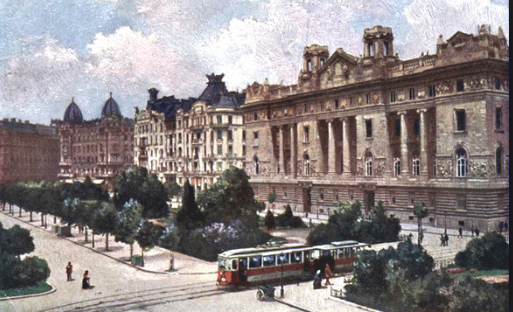
A Jegybank megállapítja, hogy a Magyar Általános Hitelbank alaptőkéje nagy részét elvesztette. A bankpánik megfékezésére 1931. Július 13-ára háromnapos bankszünetet...
1931. augusztus 19.
Bethlen István miniszterelnök benyújtja lemondását, melyet átmenetinek tekint, arra számítva, hogy a válság lecsengése után újra miniszterelnök lehet. Gróf Károlyi...
1931. augusztus 31.
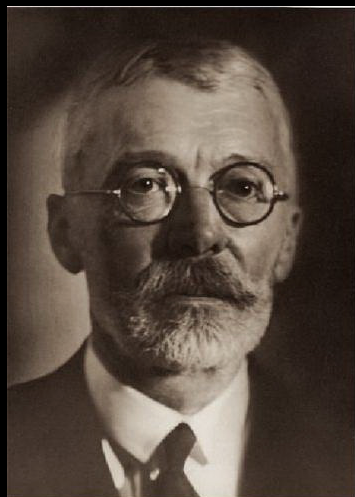
Kormányrendelet útján csökkentik az állami alkalmazottak fizetését, s a szociális juttatásokat. A megszorító intézkedések közé tartozik az állami gépkocsik használatának...
1931. szeptember 13.
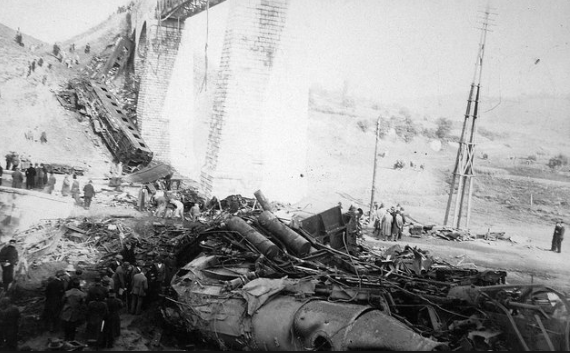
Matuska Szilveszter csantavéri származású bécsi kereskedő pokolgépet robbant a biatorbágyi vasúti hídon. A bomba Egy Budapest-Hegyeshalom-Bécs járatú gyorsvonat alatt robban...
1932 március –április 10.
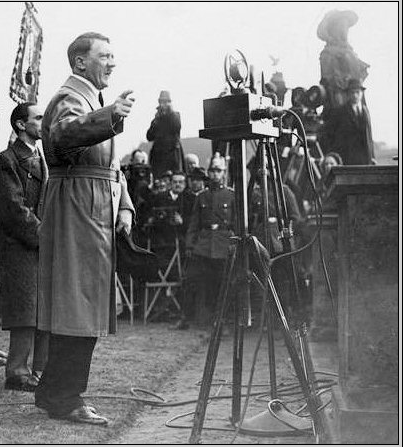
Adolf Hitler a Német Nemzetiszocialista Párt modern propaganadaeszközöket és modern kampánytechnikákat ( pl repülős országjárás) követően is csupán másodikként végez...
1932 június
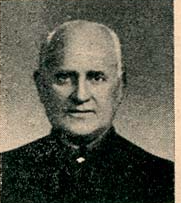
Meskó Zoltán megalakítja az első magyar magát nemzeti szocialistának valló pártot, a „Magyar Nemzeti Szocialista Földmíves és Munkapártot”.
1932 szeptember-október
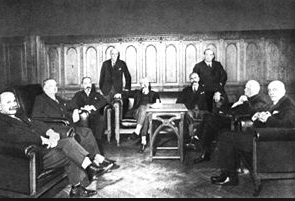
Bethlen István volt miniszterelnök, aki a kormánypártban még döntő befolyással bír, lemondásra szólítja fel a Károlyi-kabinetet. Károlyi Gyula gróf benyújtja...
1932 október
Gömbös Gyula miniszterelnök ismerteti kormánya programját, a 95 pontos „Nemzeti Munkatervet”, mely előjelez egy felvevőpiac-kereső külpolitikát, a korábbiaknál ellenőrzöttebb sajtót,...
1920. március 1.
Horthy Miklóst a parlament Magyarország kormányzójává választja.
1933. július 22.
Berlinben német-magyar kereskedelmi szerződés születik, mely piacot nyit a magyar gabonaexport számára a Német Birodalomban.
1933 július 23–26.
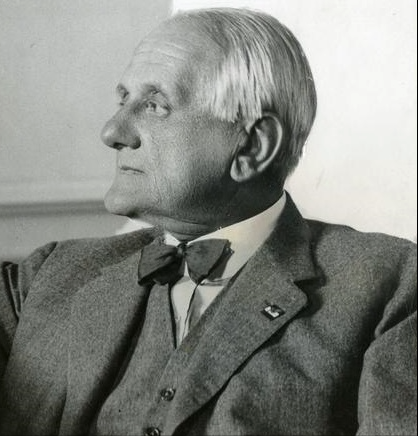
Gömbös Gyula miniszterelnök és Kánya Kálmán külügyminiszter Benito Mussolini olasz államfő meghívására Rómába utazik, egy magyar-olasz-osztrák együttműködés lehetőségének megtárgyalására.
1933. szeptember 1.
Magyarország és Olaszország kereskedelmi megállapodást köt, 1,3 millió mázsa búza olasz exportjáról.
1933. november 27.
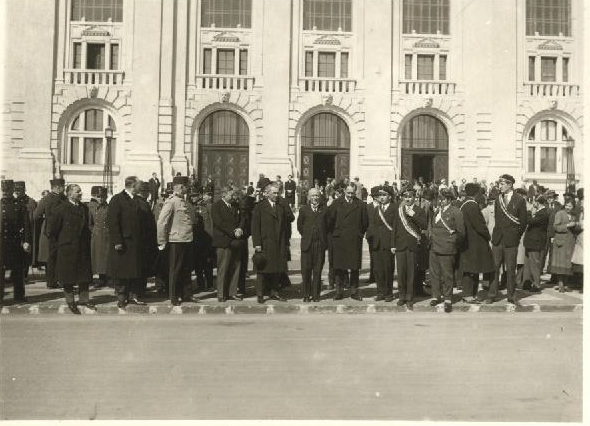
A debreceni egyetemet antiszemita zavargások miatt egy hétre bezárják.
1934. március 14 – 18.
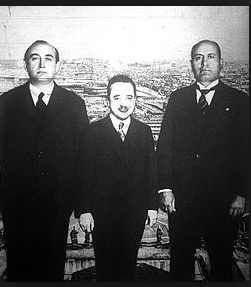
Mussolini kezdeményezésére olasz–magyar–osztrák kereskedelmi tárgyalások folynak Rómában, ezek eredményeként a három állam képviselői március 17-én aláírják a 3 római jegyzőkönyvet,...
1934. július 25.
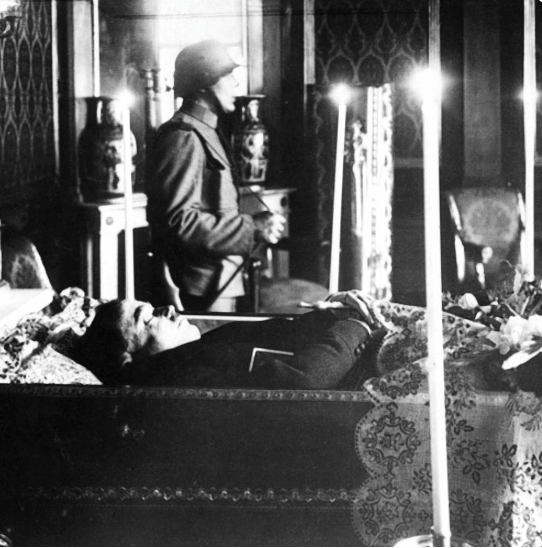
Berlin támogatását élvező osztrák nemzetiszocialisták meggyilkolják Engelbert Dolfuss kancellárt. Utódja, Kurt von Schusnigg is támogatja az olasz-osztrák-magyar kapcsolatok további erősítését.
1934. augusztus 2.
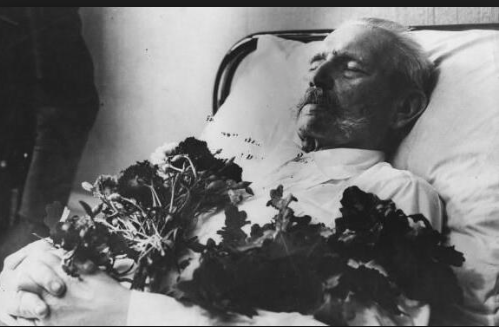
Hindenburg elnök halála. Hitler kormánya új elnökválasztás kiírása helyett összevonja az elnöki és a kancellári posztot „führer és kancellár” néven,...
1934. október 9.
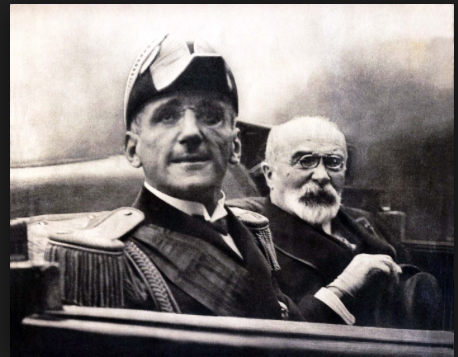
Marseille-ben a macedón-horvát „Tett Propagandája” csoport merényletet hajt végre II. Sándor jugoszláv király ellen, melynek során mind az uralkodó, mind...
1935. március 5.
Horthy kormányzó Gömbös Gyula kérésére feloszlatja az országgyűlést, s új választásokat ír ki.
1935. március 6 -7.
Bethlen István és hívei elhagyják a kormánypártot, a volt miniszterelnök választási beszédében ismerteti azokat a pontokat, melyekben nem ért egyet...
1935 március
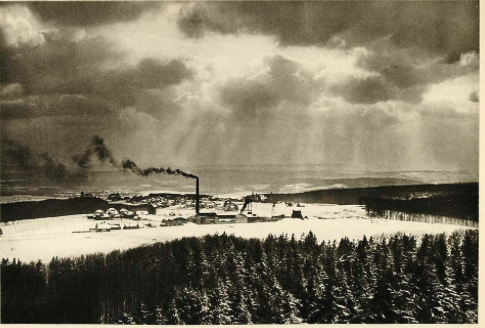
miután a Saar vidék a párizsi békeszerződésben előírt 15 év után népszavazás útján visszakerül Németországhoz, Hitler – saját vezérkarát is...
1935 március 31 – április 4.
Országgyűlési választások vidéken. (199 nyílt szavazású kerületben.)
1935. április 6-7.
Országgyűlési választások Budapesten. A választásokat elsöprő többséggel a kormánypárt nyeri.
1935. július 17.
Megindul a spanyolországi polgárháború.
1935. október 2. – december
Olaszország megtámadja, majd elfoglalja Abesszíniát. Az akció a Népszövetségben ellenkezést vált ki, Mussolini Franciaországhoz közeledik területi igényeinek elfogadtatása érdekében, ezzel...
1936. március 12.
Kurt Schussnig osztrák kancellár Budapestre látogat.
1936. augusztus 1- 16.
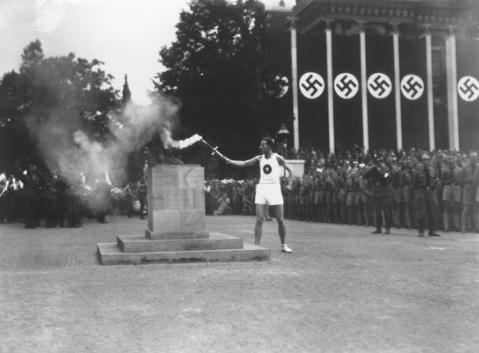
Német Birodalom propagandahadjáratával övezve Berlinben rendezik a XI. Nyári Olimpiát.
1936. augusztus 22.
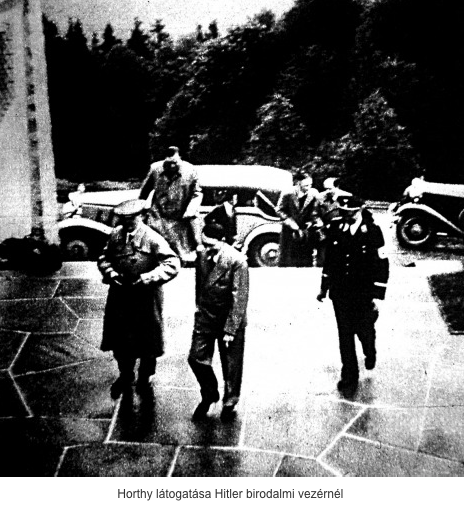
Horthy Miklós kormányzó egy magán jellegű vadászút során látogatást tesz Adolf Hitler Führer és kancellárnál Berchtesgadenben. Az Anschlusstól tartó bécsi...
1936. október 6.
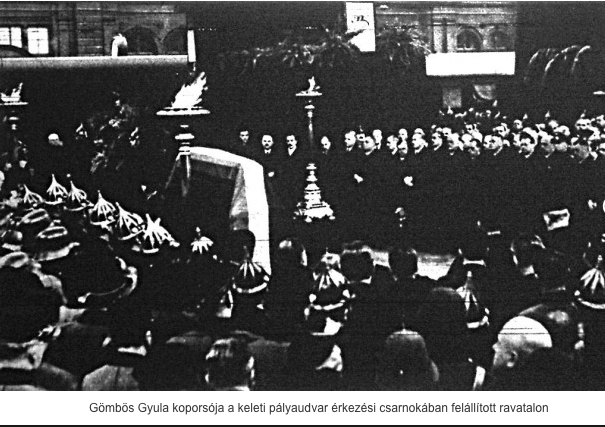
Gömbös Gyula miniszterelnök hosszan tartó betegségében Münchenben elhuny. Utódja a már hónapok óta miniszterelnöki feladatokat ellátó Darányi Kálmán.
1936. október 25 – 27.
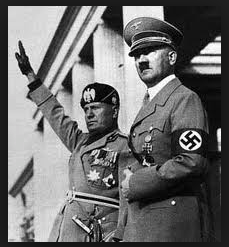
Németország és Olaszország megegyezik a „Berlin-Róma tengely” megalakításáról, a két állam politikai együttmúködéséről. A név maga még 1934-ből, Gömbös Gyulától...
1936. november 24 – november 26.
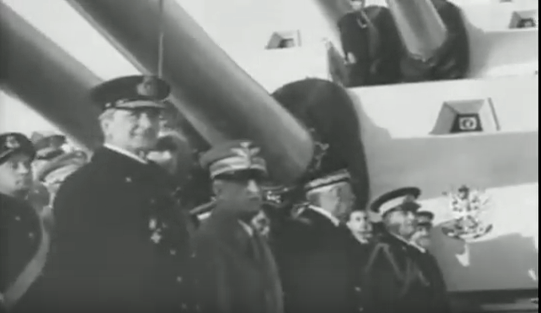
A magyar kormányzói pár Rómába látogat, ahol Benito Mussilini, s III. Viktor Emánuel király látja vendégül őket.
1936. november 25.
Németország és Japán megköti az antikomintern paktumot.
1937. március 15.
A népi írók , A Budapesti Egyetemi Kör összefogásával létrejött Márciusi Front gyűlésén a Nemzeti Múzeum lépcsőjén Féja Géza író...
1937. április 16.
A Darányi-kormány belügyminisztere rendeleti úton feloszlatja Szálasi Ferenc első pártját, a NAP-ot.( Nemzeti Akarata Pártja )
1937. május. 19 – május 22.
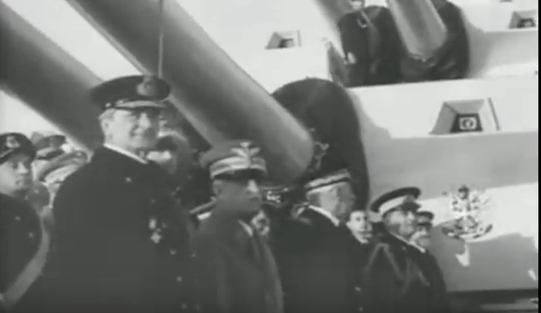
Budapestre látogat III. Viktor Emánuel olasz király, felesége, Ilona királyné, s legkisebb lányuk, Savoyai Mária királyi hercegnő
1937. július 28.
A magyar parlament megszavazza a ( még Gömbös Gyula által megígért ) „ a kormányzói jogkör kiterjesztéséről és a kormányzóválasztásról”...
1937. október 23.
A szélsőjobboldali pártok Magyar Nemzetiszocialista Párt néven egyesülnek. Pártelnök: Szálasi Ferenc.
1937. november 28.
A Magyar Nemzeti Szocialista Párt debreceni szervezete szórólapok terjesztésébe kezd „Éljen I. Miklós király” felirattal, melyen Horthy királlyá kikiáltlását szorgalmazza....
1938. január 1.
Budapesten utcáin Újév reggelére röpcédulák ezrei jelennek meg, rajtuk egyetlen mondattal „ 1938, Szálasi!”
1938 január
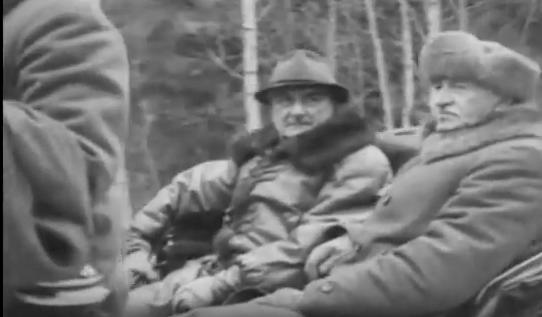
Horthy Miklós és idősebb fia Lengyelországban vesz részt, vadászaton. Ignac Mościcki lengyel elnök arra buzdítja, választassa fiát örökösének.
1939. február 16.
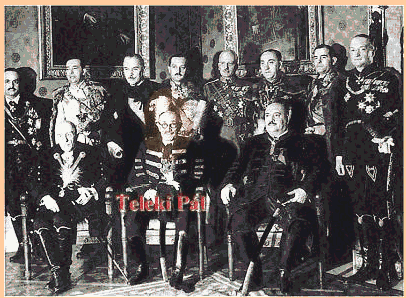
Teleki Pál alakít kormányt
1938. február 21.
Széll József belügyminiszter rendeleti úton tiltja be a Magyar Nemzeti Szocialista Pártot.
1938. február 21.
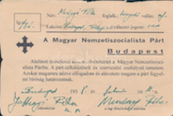
A Belügyminisztérium betiltja Szálasi Ferenc pártját, a Magyar Nemzetiszocialista Pártot, azzal az indokkal, hogy az megegyezik a korábban már betiltott...
1938. március 5.
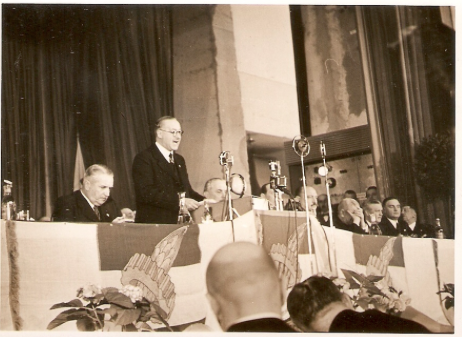
A kormánypárt, a Nemzeti Egység Pártja nagygyűlést tart Győrben. Itt Darányi Kálmán miniszterelnök egymilliárd pengő értékű hadsereg-fejlesztési programot jelent be,...
1938. március 11- 13.
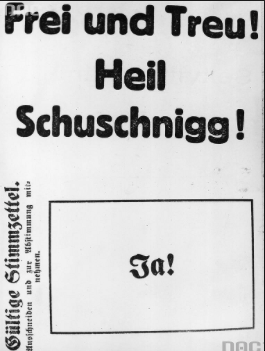
Megakadályozandó, hogy Ausztria népszavazással döntsön függetlensége kérdéséről, Németország ultimátumot küld Kurt von Schussnigg kancellárnak, hogy adja át posztját az Osztrák...
1938. március 21.
Darányi Kálmán miniszterelnök feltehetően a Bethlen-Peyer paktum mintáját követve tárgyal Hubay Kálmánnal, a Magyar Nyilaskereszter Párt vezetőjével. 10 parlamenti mandátumot...
1938. május 4.
Darányi Kálmán beadja lemondását.
1938. május 13.
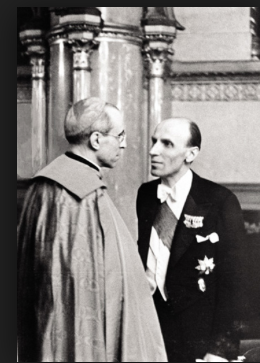
Horthy Miklós Imrédy Bélát, a Magyar Nemzeti Bank elnökét kéri fel kormányalakításra.
1938. május 25 – 29.
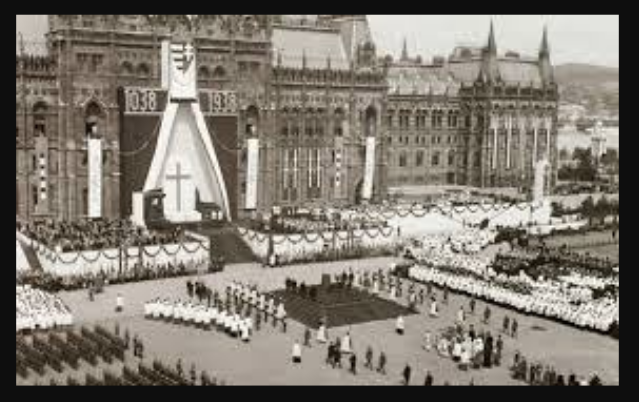
A Szent István király halálának 900. Évfordulójára is emlékező Budapesten rendezik a 34. Eukarisztikus Világkongresszust. 33 országból mintegy érkeznek küldöttek,...
1938. május 29.
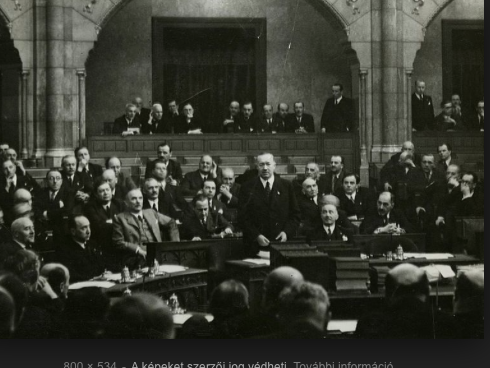
Érvénybe lép „a társadalmi és a gazdasági élet egyensúlyának hatályosabb biztosításáról”, vagy a köznyelv és a történész szakma által csupán...
1938. július 6.
A másodfokú bíróság Szálasi Ferencet 3 évi fegyházbüntetésre ítéli.
1938 augusztus
Hitler felajánlja az elcsatolt északi területek revizízóját Magyarországnak, abban az esetben, ha a magyar hadsereg támadást kezdeményez, a magyar fél...
1938. augusztus 29.
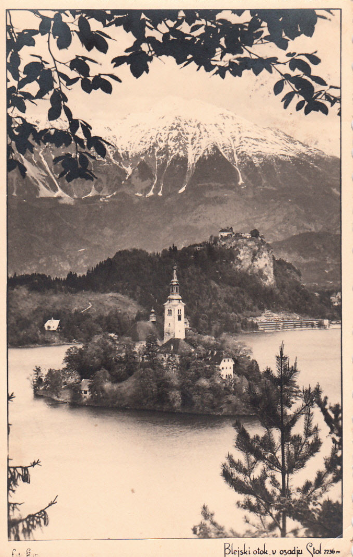
Bledben Románia, Jugoszlávia és Csehszlovákia képviselői elismerték Magyarország fegyverkezési egyenjogúságát, cserébe utóbbi lemondott a trianoni határok erőszakos visszaállításáról.
1939. szeptember 3.
Nagy-Britannia és Franciaország ultimátumot küld Németországnak, a hadműveletek azonnali leállítását követelve. Mivel ez nem következik be, mindkét ország hadat üzen,...
1938. szeptember 29.
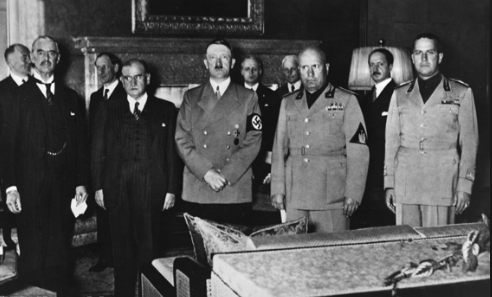
Németország, Nagy-Britannia, Olaszország és Németország Münchenben egyezményt ír alá, mely Németországnak ítéli a Szudéta-vidéket, s kötelezi Csehszlovákiát a lengyel és...
1938. október 4.
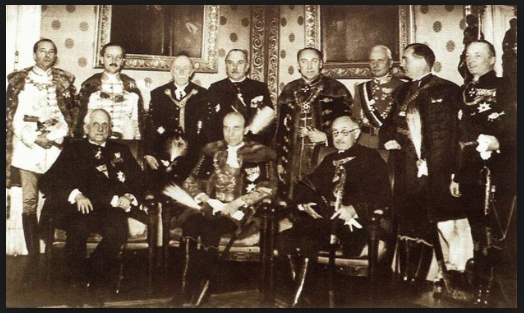
Imrédy Béla miniszterelnök kormányülésen jelenti be a rendeleti kormányzás bevezetésének szükségességét. A kormány döntő többségben tiltakozik a javaslat ellen.
1938. október 9.
Tárgyalások kezdődnek a magyar és a szlovák fél között Komáromban a Felvidék revíziójáról. ( Szlovákia két nappal korábban deklarálta függetlenségét.)...
1938. november 2.
Mivel Nagy-Britannia a döntésben nem kíván részt venni, Németország és Olaszország részvételével döntés születik mintegy 11 ezer km2 területet Magyarországhoz...
1938. november 16.
Imrédy Béla nyílt diktatórikus törekvései elleni tiltakozásképpen 62 képviselő lép ki a kormánypártból. ( NEP), mely így kisebbségbe kerül a...
1938. november 23.
Imrédy november 23-án benyújtja lemondását, melyet a kormányzó akkor még nem fogad el.
1939 január
Horthy kormányzó egy vadászaton áldását adja a kormánypártból kivált disszidenseknek Imrédy Béla elmozdítására.
1939. január 6.
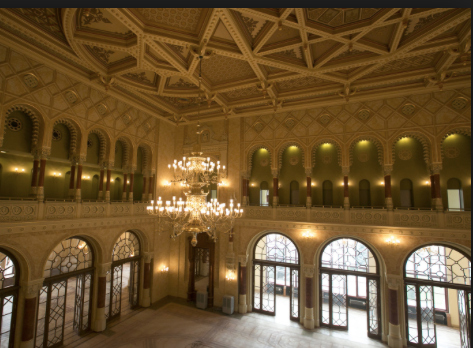
Imrédy Béla miniszterelnök beszédet tart a Budapesti Vigadóban, melyen egy jobboldali mozgalom zászlóbontását jelenti be, létrejön a Magyar Élet Mozgalom.
1939. február 15.
Miután Rassay Károly képviselő anyakönyvi dokumantomot hoz nyilvánosságra, Imrédy Béla miniszterelnök zsidó származását bizonyítandó, a saját retorikájának és politikájának áldozatul...
1939. február 24.
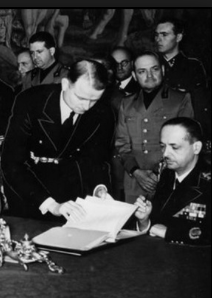
Magyarország csatlakozik az antikomintern paktumhoz.
1939. február 25.
A belügyminiszter betiltja a Magyar Nemzetiszocialista Párt és Hungarista Mozgalom, Valamint a Hungarista Párt működését.
1939. március 15.
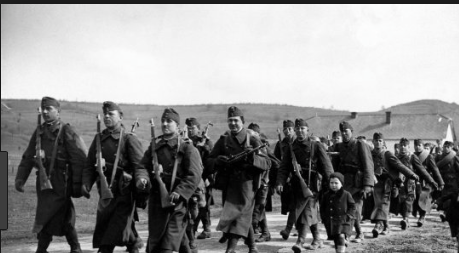
A német hadsereg megszállja Cseh- és Morvaországot, s Cseh-Morva Protektorátus néven az országukhoz csatolják. Magyarország megkezdi bevonulását Kárpátaljára.
1939. május 5.
Érvénybe lép a második zsidótörvény mely határozott arról, az egyetemek és főiskolák első évfolyamára zsidó származásúakat csak olyan arányban lehet...
1939. május 28 – 29.
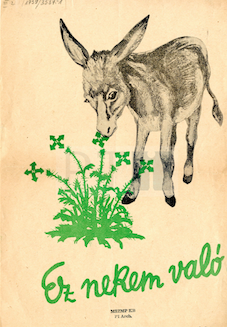
1922 óta az első titkos szavazással tartott választások, melyen a szélsőjobboldal példátlanul magas, 48 mandátumot szerzett. ( Mely az összes...
1939. augusztus 23.
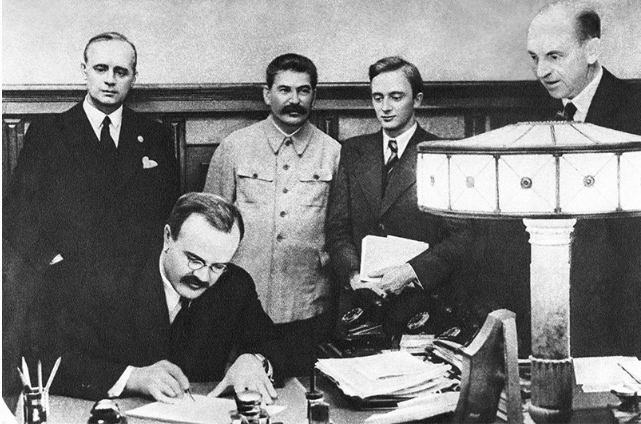
Joachim von Ribbentrop német, és Vjacseszlav Mihaljovics Molotov szovjet külügyminiszter együttműködési szerződést ír alá. A később Molotov-Ribbentop paktumként elhíresült dokumentum...
1939. augusztus 25.
Lengyelország és Nagy-Britannia védelmi egyezményt ír alá.
1939. szeptember 1.
Lengyel egyenruhába öltöztetett német katonák elfoglalják egy határmenti kisváros, Gleiwitz rádiótornyát, mire a német légierő bombázni kezdi Wielun városát. Majd...
1939. szeptember 17.
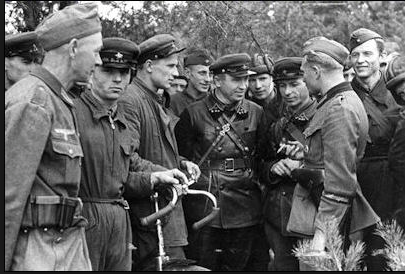
A szovjet haderő is átlépi a határt és előrenyomul a Molotov-Ribbentrop paktumban kötött megállapodás vonaláig.
1939. szeptember 21.
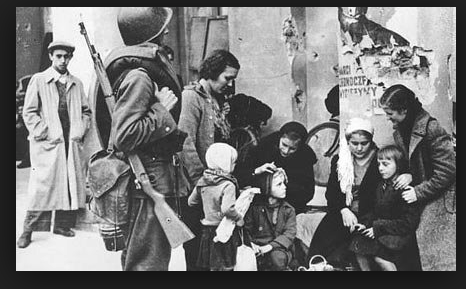
A magyar kormány hivatalosan megnyitja a határt a lengyel menekültek előtt.
1939. október 5.
Magyarországon életbelép az 5300/ 1939. számú miniszteri rendelet, melynek értelmében minden 14 és 70 év közötti személy honvédelmi munkára kötelezhető.
1939. november 28.
A Szovjetunió a finn határ mellett saját területén lévő Mainila települését ágyúzza, majd határincidens szímszóval megtámadja Finnországot. Kezdetét veszi a...
1939/1940 tele
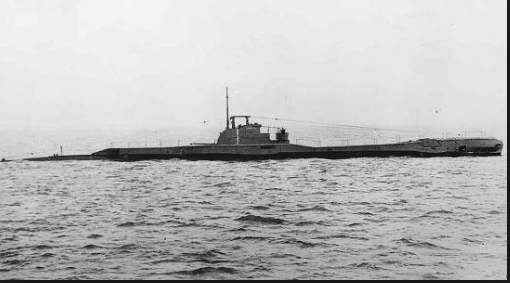
Tengerealattjáró-háború az Atlatni-óceánon.
1940
A háború hatásai kezdenek beszűrődni a magyar hétköznapokba. A földművelésügyi miniszter áprilisban elrendeli a pékeknek a csökkentett liszttartalmú, korpaalapú ún...
1940. március 13.
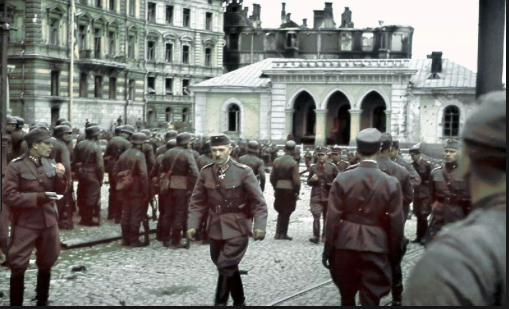
A Vörös Hadsereg elfoglalja Viipurit. Még ugyanezen a napon békét ír alá a két ország Moszkvában. Véget ér a „Téli...
1940. március 17.
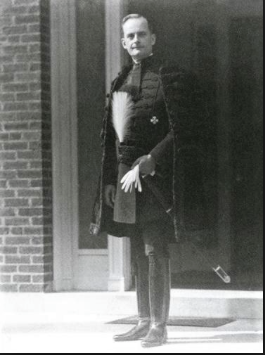
Teleki Pál magyar miniszterelnök ötmillió dollárt helyez letétbe Pelényi János washingtoni követ útján az Egyesült Államokban, egy esetleges magyar emigráns...
1940. április – június 9.
brit és francia csapatok érkeznek Narvikba, azt azonban három hónap után feladni kénytelenek. Németország így megszerzi Norvégiát.
1940. április 9.
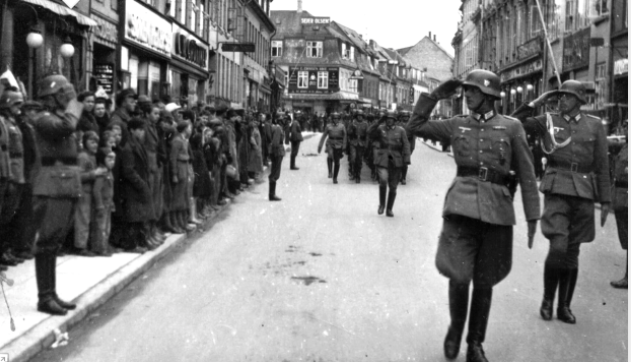
Német csapatok néhány óra leforgása alatt elfoglalják Dániát. S ugyanezen a napon támadást intéznek Norvégia ellen. ( A háború folytatásához...
1940 május
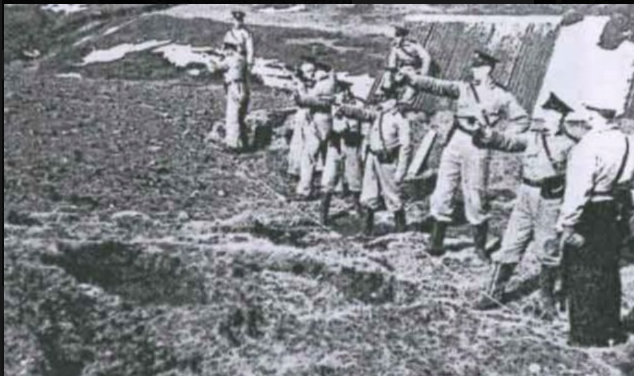
Nagy-Britannia elfoglalja Izlandod.
1940. május 9.
Német csapatok vonulnak be a semleges Luxemburg területére.
1940. május 10.
Német csapatok foglalják el Hollandiát
1940. május 11-14.
Németország elfoglalja Belgiumot
1940. május 15.
Elutasítva Hitler békefelajánlását a Royal Air Force a Ruhr-vidék bombázásába kezd.
1940 június – augusztus
A Luftwaffe a Royal Air Force felőrlése céljából nagyerejű légitámadásokat intéz a csatornán hajózó angol konvolyok, s a dél-kelet angliai...
1940. június 10.
Olaszország hadat üzen Nagy-Britanniának.
1940. június 10.
Német csapatok vonulnak be Párizsba.
1940. június 28.
Szovjetunió Besszarábia és Észak-Bukovina átadására szólítja fel Romániát.
1940. augusztus 30.
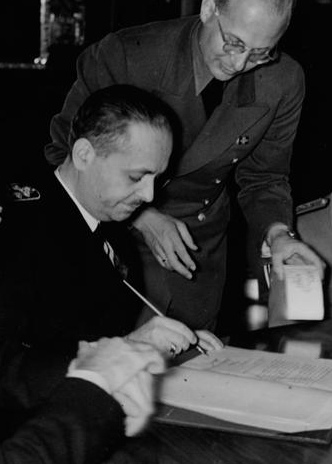
Némteország és Olaszország határozatot hoz Bécsben a román-magyar területi vita kérdésében. A II. Bécsi döntés néven elhíresül határozat értelmében Észak-Erdély...
1940. szeptember 9.
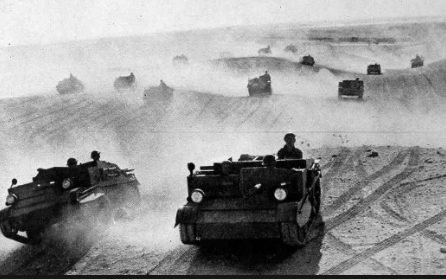
Olasz csapatok indulnak Egyiptom ellen.
1940 szeptember-október
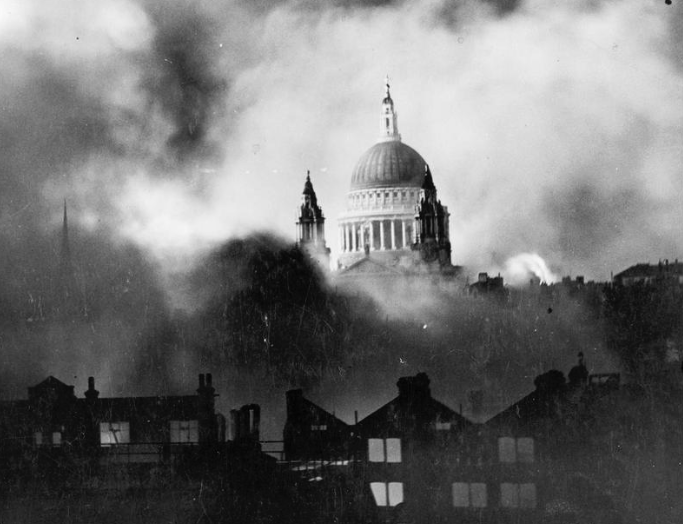
A német légierő Londont bombázza. Anglia védelmi ereje azonban nem csökken döntő mértékben.
1940. szeptember 22.
Szálasi Ferenc amnesztiával szabadul fegyházbüntetéséből és átveszi a Nyilaskeresztes Párt vezetését.
1940. szeptember 27.
Némteország- Olaszország és Japán aláírja a háromhatalmi egyezményt, melyben Japán elismeri Németország és Olaszország vezető szerepét Európában az új rend...
1940. október 4.
A Keresztény Nemzeti Szocialista front fúzionál a Nyilaskeresztes Párttal.
1940 október
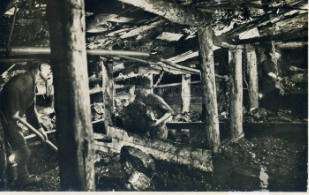
A nyilaspárt propagandaja által feltüzelve bányászsztrájk robban ki – a fellázadt munkásokat az őket felhergelő politikusok azonban cserbenhagyják.
1940. október 28.
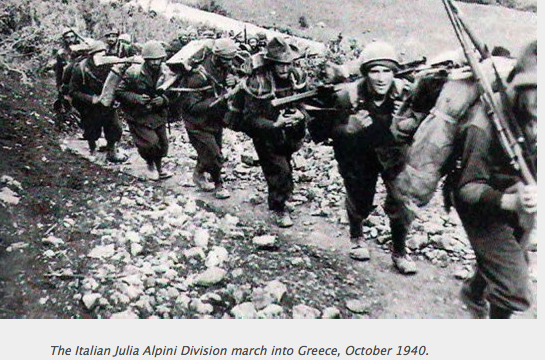
Olaszország támadást intéz Görögország ellen.
1940. november 20.
Magyarország csatlakozik a háromhatalmi egyezményhez. Két nappal később ( november 22) Románia, majd három napra rá ( november 23.) Szlovákia...
1940. február 11-12.
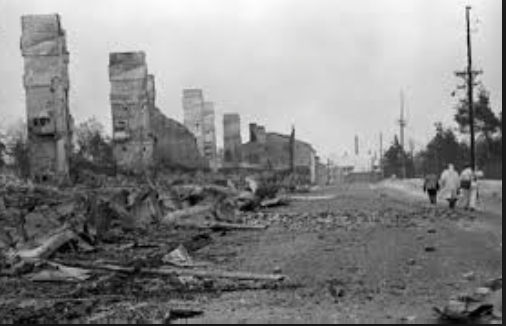
A szovjet hadsereg a befagyott finn öblön keresztül megkerüli Finnország kiépetített védelmi-erőd rendszerét, a Mannerheim-vonalat. Megkezdődik Viipuri ostroma.
1940.december 12.
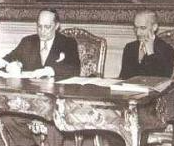
Jugoszlávia és Magyarország „ örök barátsági” szerződést köt, melyben biztosítják egymást, hogy vitás kérdéseiket tárgyalásos úton fogják rendezni.
1941 február
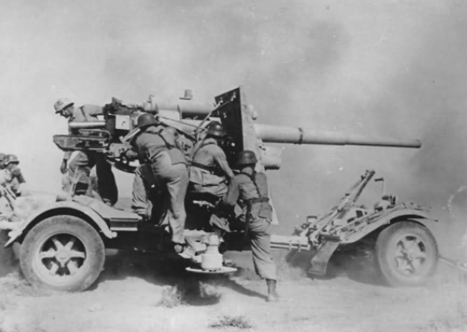
A németek Olaszország megsegítésére Észak-Afrikába küldik az Afrika hadtestet. Ezzel a háborúnak harmadik frontja nyílik.
1941. március 26.
Jugoszlávia csatlakozik a háromhatalmi egyezményhez.
1941. március 27.
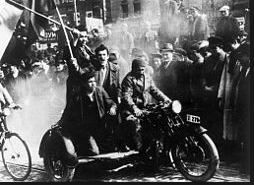
Egy angolbarát katonai puccs megdönti Jugoszláviában a Cvetkovic kormányt.
1941. március 28.
Hitler, aki Jugoszlávia német megszállása mellett döntött, területi ígéretek mellett felszólítja a magyar kormányt, hogy vegyen részt a katonai akcióban.
1941. április 3.
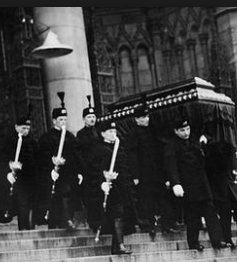
Teleki Pál miniszterelnök feltehetően a külpolitikai események súlya alatt önkezével vet véget az életének.
1941. április 6.
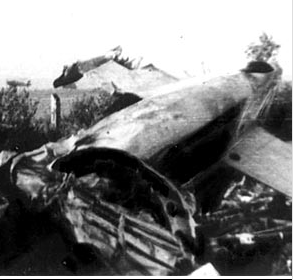
Németország megindítja offenzíváját Jugoszlávia ellen.
1941. április 10.
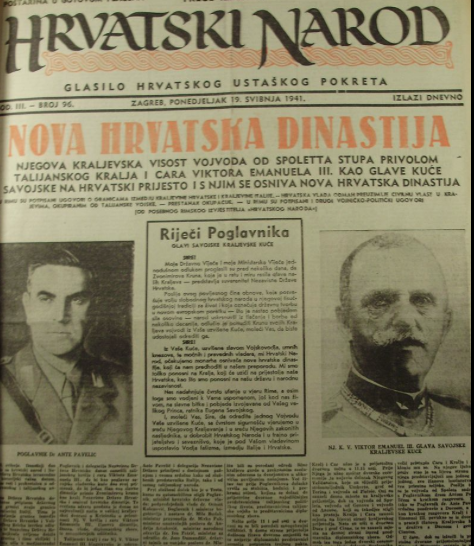
Horvátország kikiáltja függetlenségét.
1941. április 11.
Azzal a megokolással, hogy Horvátország kiválásával a Jugoszláv állam, mellyel az örök barátsági szerződés köttetettt, megszűnt létezni, Magyarország bekapcsolódik a...
1941. április 12.
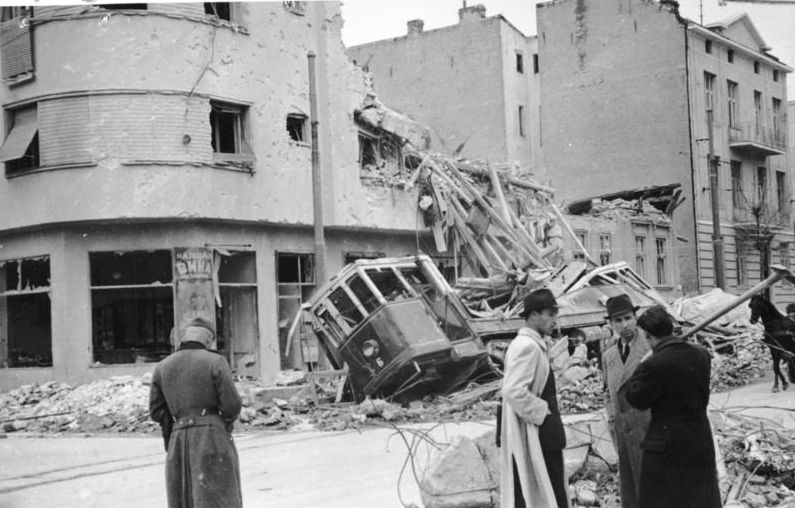
Német csapatok vonulnak be Belgrádba. Adolf Hitler kéri a magyar kormányt, hogy a magyar csapatok ne álljanak meg a történelmi...
1941. április 16.
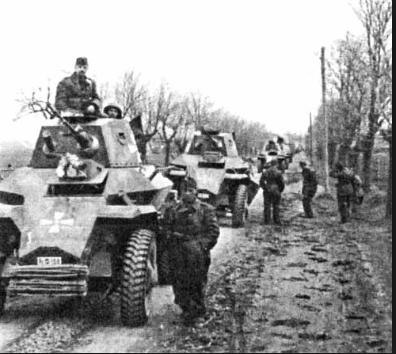
A Gyorshadtest átlépi a Drávát, a Magyar Királyság történelmi határát.
1941. április 27.
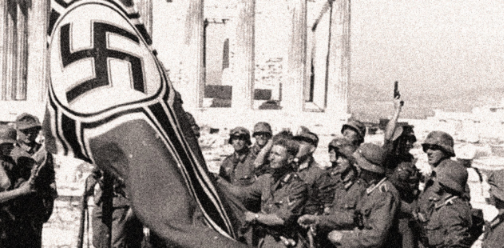
Német csapatok vonulnak be Athénba.
1941. május 10.
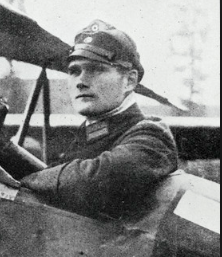
Németország helyettes führere egy saját vezetésű Messerschmidt Bf 109 típusú vadászgépen Nagy-Britanniába repül, hogy tárgyaljon. Feltehetően Hitler előző évi békeajánlata...
1941. május 30.
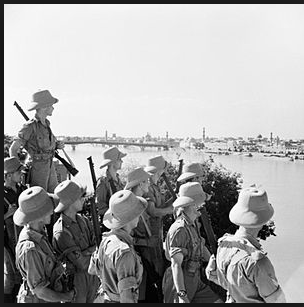
Brit csapatok vonulnak be Bagdadba.
1941. június 8.
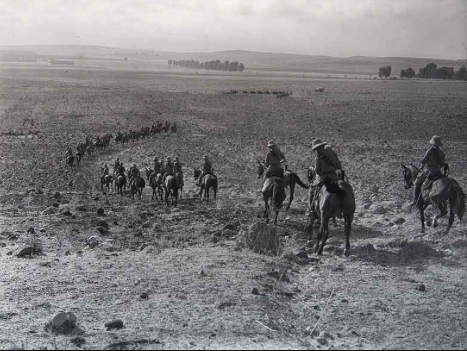
Brit ( és francia-lengyel) csapatok vonulnak be Szíriába.
1941. június 15.
Horvátország csatlakozik a Háromhatalmi Egyezményhez
1941. június 19.
Werth Henrik a Honvéd Vezérkar Főnöke és Franz Halder a német szárazföldi csapatok főparancsnokságának főnöke a magyar haderő részvételéről tárgyal...
1941. június 22.
Németország előzetes hadüzenet nélkül támadást indít a Szovjetunió ellen.
1941. június 23.
Molotov szovjet külügyi népbiztos magához kéreti Kristóffy József moszkvai követet, s tudatja vele, hogy a Szovjetuniónak nincsenek területi igényei Magyarországggal...
1941. június 26.
Máig tisztázatlan ország lefestett felségjelű gépei bombatámadást intéznek Kassa városa ellen, illetőleg ugyanezen a napon szovjet felségjelű gépek géppuskasortüzet nyitonak...
1941. június 28.
Magyar szárazföldi csapatok lépik át a magyar-szovjet határt.
1941. július 9.
Megszűnik a magyar Kárpát-csoport. Az eddig kötelékébe tartozott Gyorshadtest a német Dél Hadseregcsoport 17. hadseregének alárendeltségében tovább támad. A többi...
1941. július 10.
Magyar csapatok foglalják el Kamieneck- Podolszkijt.
1941. július 12.
Nagy-Britannia és a Szovjetunió kölcsönös katonai együttműködési szerződést köt Moszkvában, mely mindkét fél számára megtiltja a különbékét.
1941. augusztus 8.
Magyarországon életbelép a „a házassági jogról szóló 1894:XXXI. törvénycikk kiegészítéséről és módosításáról, valamint az ezzel kapcsolatban szükséges fajvédelmi rendelkezésekről” szóló,...
1941. augusztus 14.
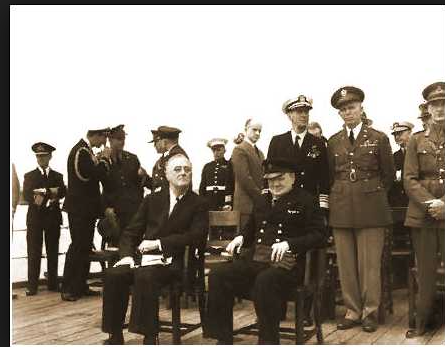
Az USA és Nagy-Britannia közzéteszi az Atlanti Chartát, melyben a háború utáni rendezés alapvelveit fektetik le. A szovjet és a...
1941. augusztus 27-28.
Az SS kötelékébe tartozó Einsatzgruppe C mintegy 23.600 Magyarországról hontalannak minősített és kitoloncolt zsidót mészárol le.
1941. szeptember 9.
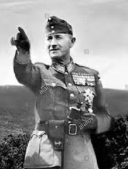
Horthy Miklós kormányzó fia tanácsára leváltja Werth Henrik vezérkari főnököt, s helyére a magyar haderő minél nagyobb mértékű otthontartását sürgető...
1941. szeptember 18.
Nyilaskeresztes Pártból kilépett parlamenti képviselők, Pálffy Fidél és Baky László vezetésével Megalakítják a Magyar Nemzeti Szocialista Pártot.
1941. szeptember 19.
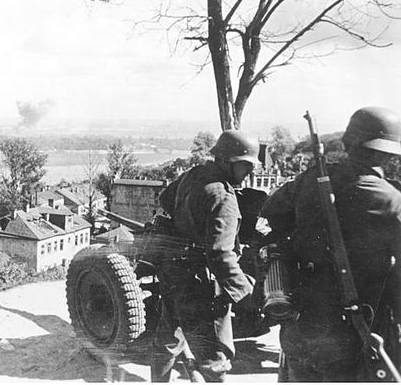
Német csapatok foglalják el Kijevet.
1941. szeptember 29.
A Magyar Nemzeti Szocialista Párt országyűlési frakciója koalícióra lép az Imrédy Béla vezette Magyar Megújulás Pártjával, megalakítva így a Magyar...
1941. október 2.
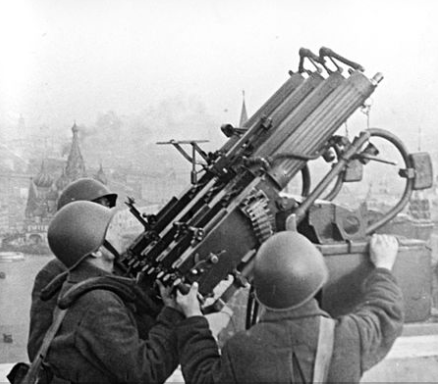
A Német Közép Hadseregcsoport támadást indít Moszkva ellen.
1941. október 6.
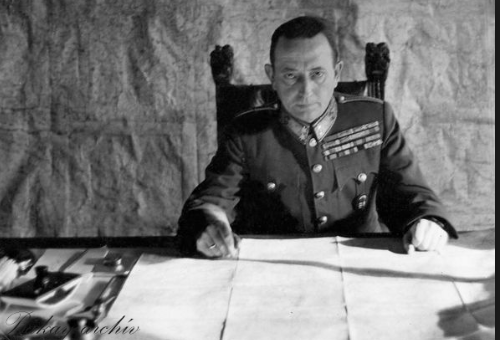
Az elfoglalt ukrajnai területeken megalakul a Magyar Megszálló Csoport Parancsnoksága.
1941 október
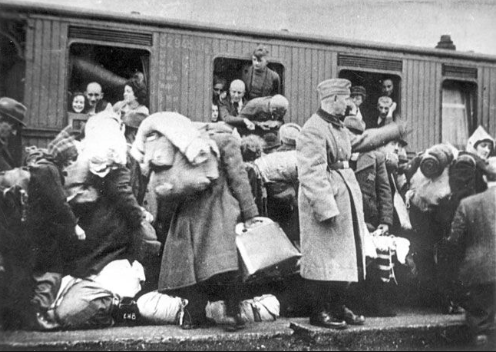
Megkezdődik a zsidók deportálása a Nagynémet Birodalom területén, Riga, Minsk, Kaunas, és Raasiku táboraiba. A deportáltak többségét az SS kirendelt...
1941. október 16.
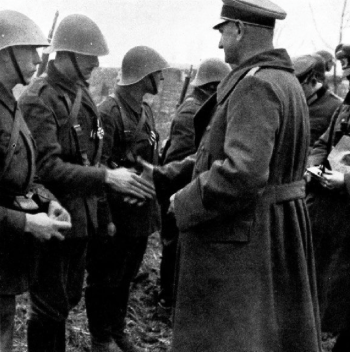
Német-román csapatok foglalják el Odesszát.
1941. október 28.
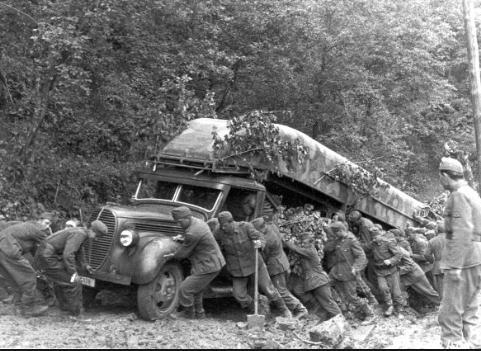
A Gyorshadtest átkel a Donyecken.
1941. november 16.
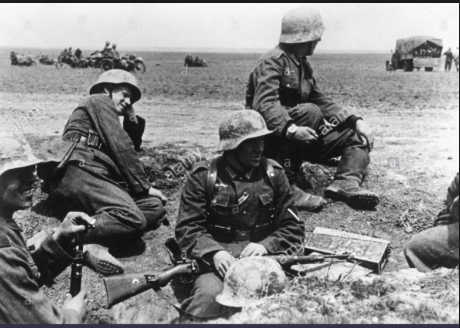
A német Déli Hadseregcsoport befejezi a Krím-félsziget elfoglalását.
1941. november 29.
Nagy Britannia ultimátumot intéz Magyarországhoz: eszerint Őfelsége kormánya a két ország között a hadiállapotot beálltnak tekinti, amennyiben A Magyar Királyság...
1941. december 6.
Moszkva alatt szovjet ellentámadás veri vissza a német csapatokat.
1941. december 6.
A londoni ultimátum értelmében beáll a hadiállapot Magyarország és Nagy-Britannia között.
1941. december 7.
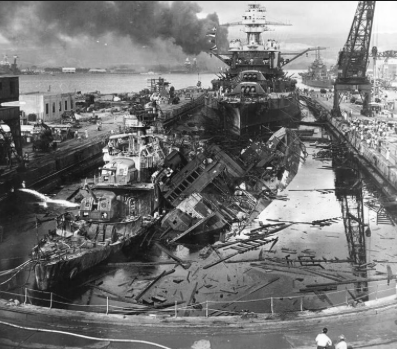
A Hawaii szigetek-i Pearl Harbour amerikai katonai támaszpontot először a reggeli őrségváltáskor ( 7 óra 55 perc ), majd a...
1941. december 8.
Az USA és Nagy Britannia hadat üzen Japánnak. A Szovjetunió bejelenti, hogy továbbra is érvényesnek tekinti a Japánnal kötött semlegességi...
1941. december 11.
Németország ( máig tisztázatlan okból, hiszen a Háromhatalmi Egyezmény ebben az esetben nem kötelezte ) hadiállapotot nyilvánít ki Az Egyesült...
1941 december vége
Horthy István, a kormányzó idősebbik fia négyszemközti találkozón Bárdossy László miniszterelnökkel beleegyezik, hogy a majdani kormányzóhelyettesi törvény ne tartalmazzon utódlási...
1942. január 6.- 9.
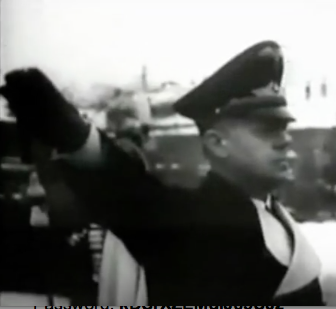
Joachim von Ribbentrop német külügyminiszter Budapestre érkezik, hogy részt vegyen Horthy Miklós kormányzó Mezőhegyesen rendezett vaddisznóvadászatán. Informális beszélgetések során tudatja...
1942. január 12 – 26.
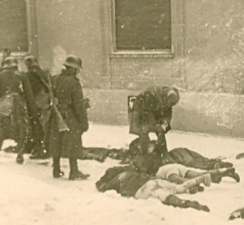
Az előző év tavaszán visszafoglalt délvidéki területeken a kezdetektől szembe kellett nézni a magyar megszálló alakulatoknak partizántevékenységgel. 1941 utolsó napjaiban,...
1942. január 20.
Konferencia a Berlin melletti Wannsee-ben, Reinhard Heydrich, SS Obergruppenführer, az RSHA ( Birodalmi Biztonsági Főhivatal) parancsnokának vezetésével. A megbeszélésen döntés...
1942. január 20 – 1942. január 22.
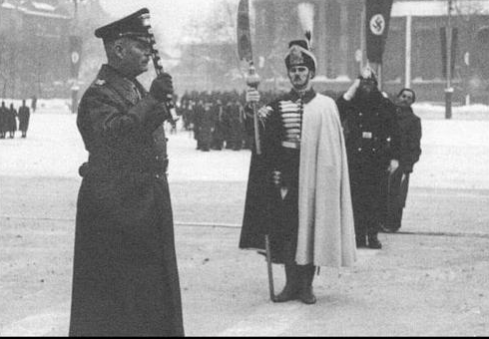
Wilhelm Keitel német vezérkari tábornagy, az OKW ( Oberkommandant der Wehrmacht) vezetője Budapestre látogat, az 1942-es évben orosz frontra küldendő...
1942. január 29.
Bajcsy-Zsilinszky Endre képviselőházi beszédében követeli az újvidéki razzia kivizsgálását.
1942. február 1.
Norvégiában Vidukind Quisling alakít kormányt.
1942. február 4.
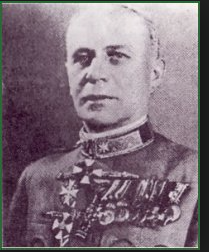
Szombathelyi Ferenc vezérkari főnök elrendeli az újvédi megtorlások kivizsgálását, mivel azonban a vizsgálóbizottság elnöke Feketehalmi-Czeydner Ferenc, aki az akciót elrendelte,...
1942. február 12.
Dietrich von Jagow budapesti német követ, és Bartha Károly honvédelmi miniszter között szóbeli megegyezés születik, hogy 18 és 30 éves...
1942. február 19.
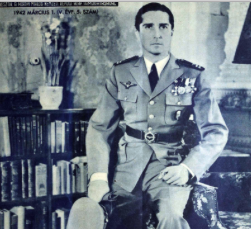
A magyar országgyűlés két háza együttes ülésen kormányzóhelyettessé választja Horthy Istvánt. Imrédy Béla, az MMP és a Nyilaskeresztes Párt távol...
1942. február 28.
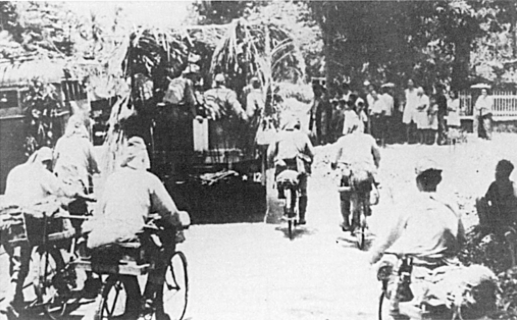
Japán csapatok szállják meg Jáva szigetét.
1942. március 8.
Japán csapatok foglalják el Rangoont
1942. március 9.
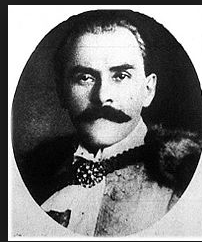
Japán csapatok foglalják el Batáviát.
1942. március 15.
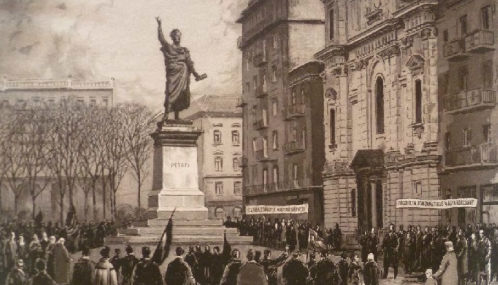
A szociáldemokratákat, kommunistákat, polgári ellenzéket, keresztényszocialistákat, s a népi írókat tömörítő Magyar Történelmi Emlékbizottság békepárti tüntetést szervez, mely a budapesti...
1942. március 27.
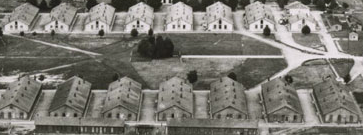
Az első Auschwitzba induló vonat elhagyja Franciaország területét. A Compiègne-ből induló szerelvény mintegy 1100 embert szállított a haláltáborba.
1942. március 28 – 29.
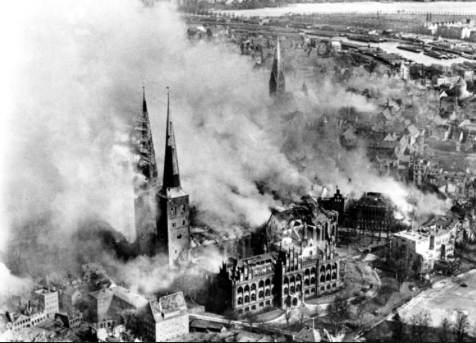
Az első civil várost érő brit szőnyegbombázás. A célpont Lübeck.
1942. március 29.
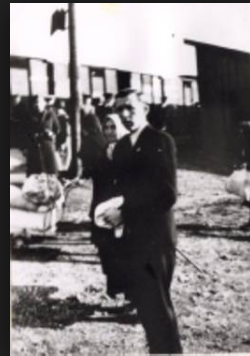
Megindul az első vonatszerelvény Poprádról Auschwitz felé.
1942. április 11.
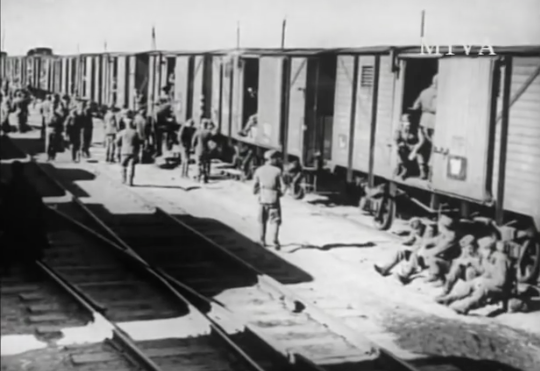
megkezdődik a második magyar hadsereg kiszállítása a keleti frontra.
1942. április 18.
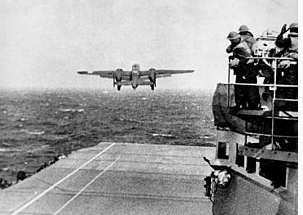
Az amerikai haditengerészeti légierő először bombázza Tokiót.
1942. május 12.
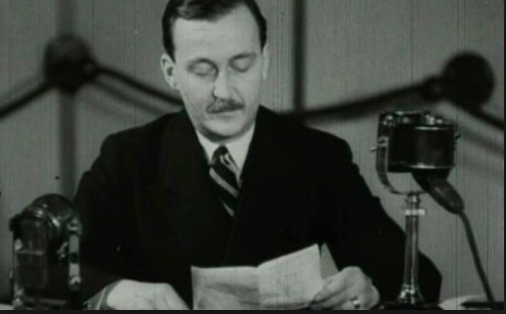
A pozsonyi parlament szavaz a zsidóság kitelepítéséről szóló 68/1942 tc-ről, melynek egyetlen ellenszavazója Esterházy János, a Felvidéki Magyar Párt képviselője.
1942. május 27.
Prágában a nagy-britanniai emigráns csehszlovák hadsereg két katonája Jan Kubiiš és Jozef Gabčik őrmesterek bombamerényletet hajtanak végre Reinhard Heydrich SS...
1942. május 30.
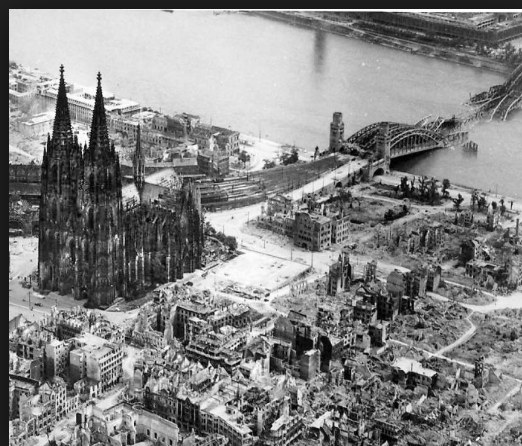
A Royal Air Force 1000 bombázóval támadja Köln városát.
1942. június 2.
Az USA kongresszusa ( minden félévvel azután, hogy Magyarország háborús állapotát deklarálta), megszavazza a hadüzenetet Magyarország ( továbbá Románia és...
1942. június 7-8.
Kállay Miklós miniszterelnök bemutatkozó látogatásra utazik Adolf Hitlerhez, aki többek között a zsidókérdés végső rendezését hítározza meg számára, mint a...
1942. június 9.
Annak a téves híresztelésnek a következményeként, miszerint Lidice falujában a Reinhard Heydrich elleni merényletben résztvevő partizánok rejtőznek, egy SS alakulat...
1942. június 11.
Az Egyesült Államok és a Szovjetunió kölcsönös együttműködési egyezményt írt alá.
1942. június 19 – 25.
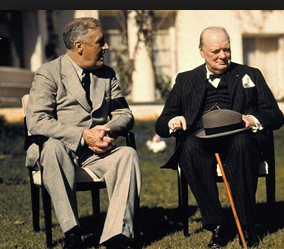
Második Washingtoni Konferencia. Churchill az Egyesült Államokba látogat, ahol a két állam képviselői megvitatják a Szovjetunió megsegítésének lehetőségeit, megegyeznek egy...
1942 június 28.
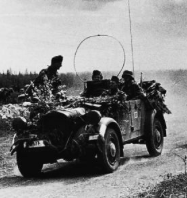
A 2. magyar hadsereg bekapcsolódik a német Dél Hadseregcsoport támadó hadműveletébe Tyim térségében.
1942.június 30.
Rommel csapatai elérik El-Alameint. A 07.2-27. között zajló első el-alameini csatában nem tudják áttörni a brit védelmet.
1942.július 1.
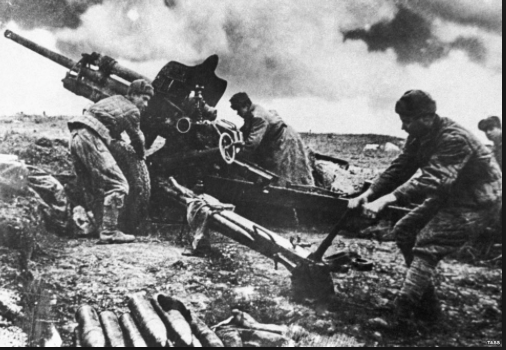
Német-román csapatok foglalják el Szevasztopolt.
1942 július – szeptember
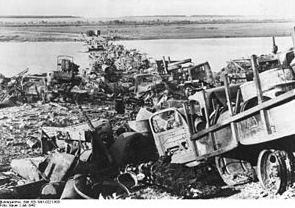
1942 Július – szeptember A doni hídfőcsaták időszaka, mely során a német-magyar haderő a Don bal partján fenntartott urivi, korotojaki,...
1942. június 8.
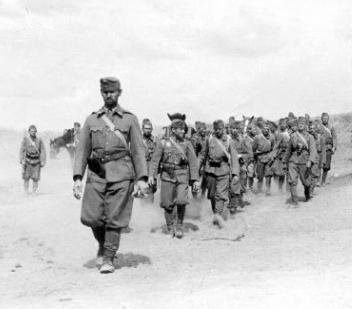
A magyar hadsereg – két nappal a német után eléri a Don folyót.
1942. július 17.
A 6. német hadsereg támadást indít Sztálingrád ellen.
1942. július 19.
Életbe lép az „izraelita vallásfelekezetek jogállásának szabályozásáról” szóló, negyedik zsidótörvényként elhíserült 1942:XV. törvénycikk, mely a zsidó vallást bevett vallásból törvényesen...
1942. július 23.
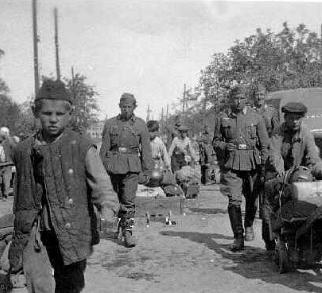
Német csapatok foglalják el Rosztovot.
1942. július 27.
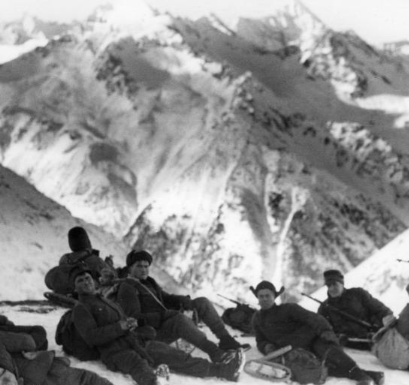
Német támadás a Kaukázus ellen.
1942. július 31.
Életbelép a „a honvédelemről szóló 1939. évi II. törvénycikk, valamint az 1914-1918. évi világháború tűzharcosai érdemeinek elismeréséről szóló 1938. évi...
1942. augusztus 1.
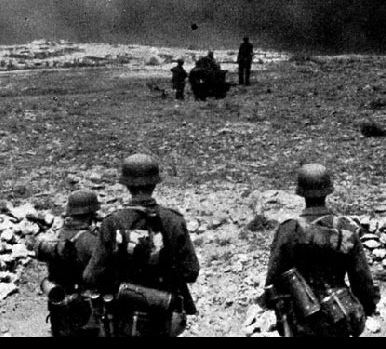
Német és román csapatok elfoglalják Szevasztopolt.
1942 augusztus
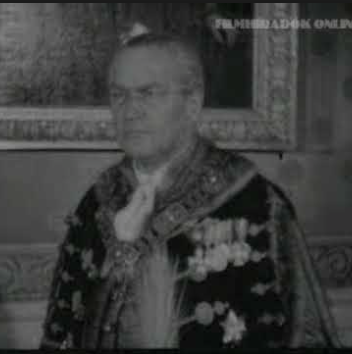
Lukács Béla a a Magyar Élet Pártja elnöke egy kormánypárti képviselőkből álló csoport élőn a Gödöllői kastélyban nyaraló kormányzó unokája...
1942. augusztus 4.
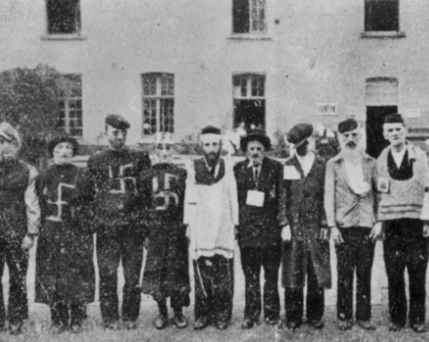
A belgiumi Mechelemből elindul az első transzport Auschwitzba, 999 fogollyal, ezzel megkezdődik a belgiumi zsidók deportálása.
1942. augusztus 5 – szeptember 1.
A magyar 10. És a segítségére érkező 12. Könnyűhadosztály sikeresen visszaver egy a korotojaki hídfőből induló támadást,.
1942. augusztus 7. (2)
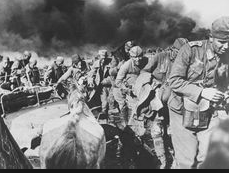
Megkezdődik Korotojak első ostroma.
1942. augusztus 7.

1942. augusztus 7. Bernard Montgomery tábornok átveszi a 8-ik Brit Hadsereg Parancsnokságát Észak-Afrikában, ezzel az afrikai front új korszaka kezdődik.
1942. augusztus 15 – augusztus 18.
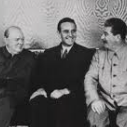
Horthy István kormányzóhelyettes három napos szabadságot kérve feletteseitől a Magyar Királyi Légierő 1/1 vadászszázadánál, Kijevben tölt három napot Karl Kitzinger...
1942. augusztus 13.
Horthy Miklós kormányzó megszünteti az eljárást az újvidéki vérengzés két felelős tisztje, Feketehalmi Czeydner Ferenc és Deák László altábornagy ügyében....
1942. augusztus 15-18.
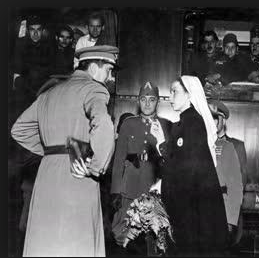
Horthy István kormányzóhelyettes eltávozást kér az 1/I. repülőszázad kötelékéből, hogy három nap szabadságot Kijevben töltsön feleségével. A megszállt ukrajnai területek...
1942. augusztus 17.
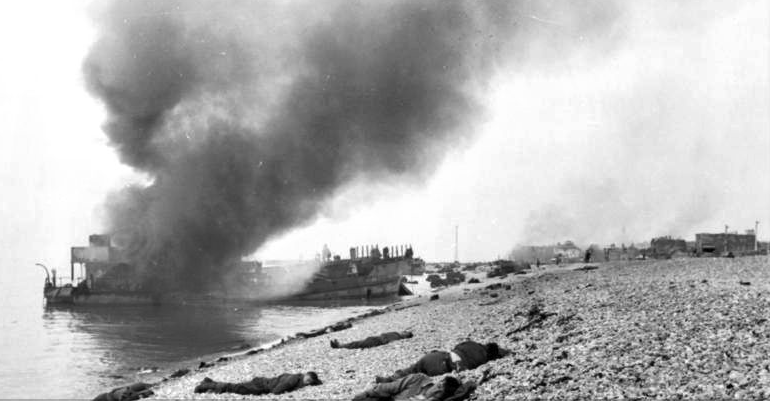
A szövetségesek sikertelen támadást intéznek a német kézen lévő francia kikötőváros, Dieppe ellen. A Jubilee-nek keresztelt hadművelet során a résztvevő...
1942. augusztus 19.
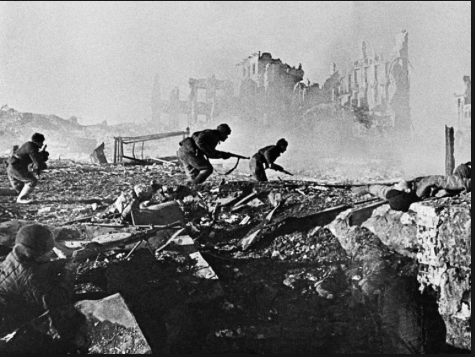
Megkezdődik Sztalingrad ostroma, a világtörténelem egyik legvéresebb és leghosszabb csatája.
1942. augusztus 20.
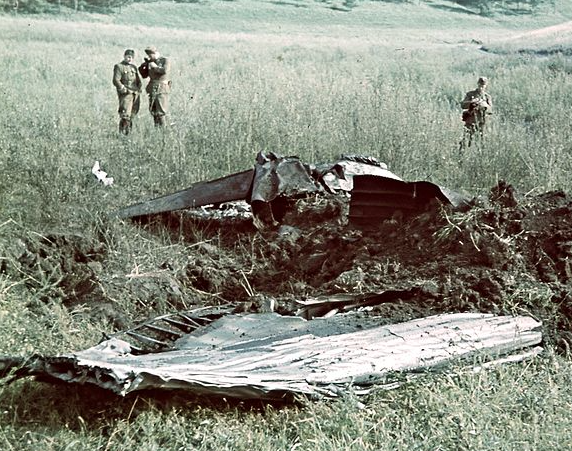
Horthy István kormáynzóhelyettes vadászpilóta bevetés közben életét veszti Ilovszkoje térségében.
1942. augusztus 27.
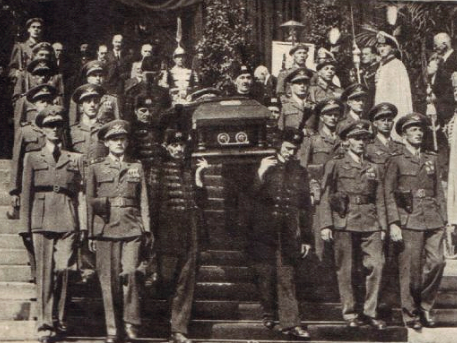
Horthy István kormányzóhelyettes temetése.
1942. szeptember 2.
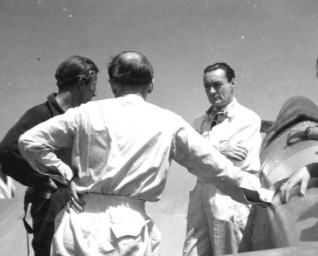
Ifj. Károlyi Gyula oktatójával, Tasnádi Lászlóval, az egyik legképzettebb magyar pilótával gyakorlórepülés közben sportgépével a Dunába zuhan és életét veszti.
1942. szeptember 4.
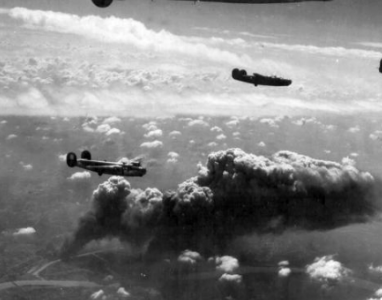
Szovjet harcigépek váratlan, éjszakai bombatámatámadást intéznek Budapest ellen. 11 ember meghal, 61 megsebesül.
1942. szeptember 24.
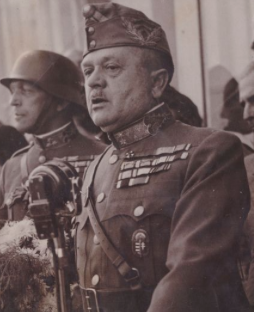
Fia frontról írt utolsó levelének tanácsát követve Horthy Miklós kormányzó lemondatja a németbarátságáról híres Bartha Károly honvédelmi minisztert, és (Nagybaczoni)...
1942. szeptember 9 – 10. éjjel
Második bombatámadási hullám Budapest ellen.
1942. október 17.
Dietrich von Jagow budapesti német követ három pontból álló jegyzéket ad át a magyar külügyminisztériumnak, melyben a követeli a magyarországi...
1942. október 23 – november 7.
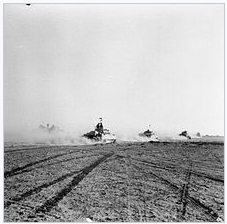
Második el Alamein-i csata, a Bernard Montgomery vezette Brit nemzetközösség és az Erwin Rommel parancsnoksága alatt harcoló német-olasz csapatok között.
1942. november 7.
Életbe lép „a hősi halált halt vitéz nagybányai Horthy István kormányzóhelyettes úr emlékének és a nemzet hálájának megörökítéséről” szóló (...
1942. november 8 – november 14.
November 8-án Amerikai-brit csapatok intéznek támadást ( a II. Moszkvai találkozó ígérete értelmében) a Vichy-Franciaroszág gyarmatai ellen. November 8-án elfoglalják...
1942. november 11.
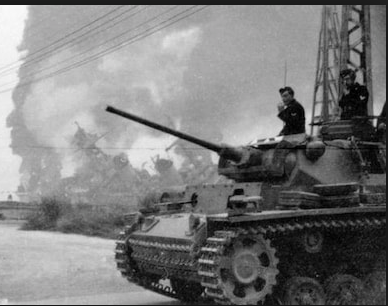
Német-olasz csapatok szállják meg A Vichy-Franciaország területeit. ( Dél Franciarországot, Korzikát.)
1942. november 18.
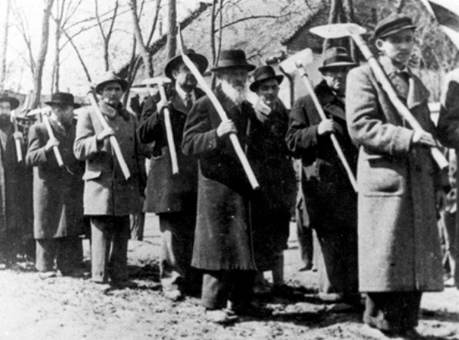
A 69059/1942 számú honvédelmi miniszteri rendelet minden zsidó férfi számára kötelezővé teszi a közérdekű munkaszolgálatot ( Azaz azok számára is,...
1942. november 25.
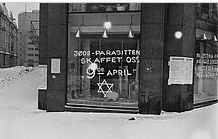
Megkezdődik a norvégiai zsidóság deportálása.
1942. december 2.
A magyar kormány visszautasítja Dietrich von Jagow budapesti német követ zsidó deportálások előkészítését szorgalmazó november 17-i jegyzékét.
1942. december 27.
A Honvéd Vezérkar főnöke elrendeli a doni hídfőállások végsőkig való tartását.
1943. január 10.
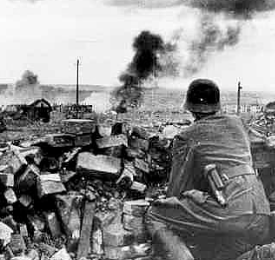
A Szovjet Doni Hadsereg megkezdi a Sztálingrádnál bekerített német csapatok felszámolását.
1943. január 12 – 13.
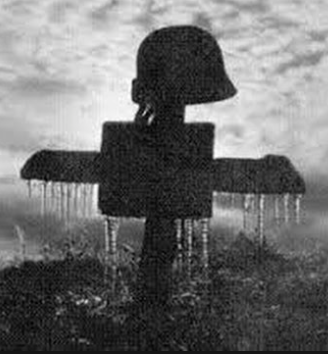
Az urivi hídfőből szovjet támadás indul a 2. Magyar hadsereg itt állomásozó 7. Könnyűhadosztálya ellen, mely kitartó védekezés után állásait...
1943. január 14- január 16.
Winston Churchill és Franklin Delano Roosevelt találkozik Casablancában, döntést hoznak a szövetségesek szicíliai partraszállásáról és leszögezik, hogy békeajánlatot mindkét hatalom...
1943. január 15.
A scucsje-i szovjet hídfőből is támadás indul, mely megsemmisíti az ott állomásozó olasz erőket, s rövid időn belül a védelmi...
1943. január 18.
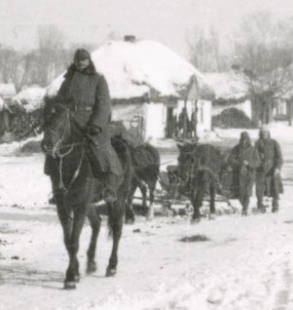
A bekerített III. Hadtesten kívül már nincs harcoló magyar alakulat a Don-kanyarban.
1943. január 24.
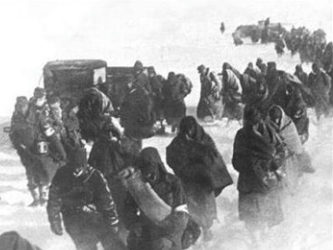
Megjelenik Jány Gusztáv, a 2. Magyar Hadsereg parancsnokának 294/2. hds. I. a. 43. I. 24. Szám-on iktatott, “A 2. magyar...
1943. január 25.
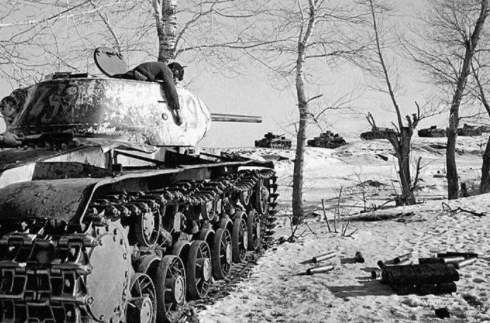
Szovjet csapatok foglalják el Voronyest.
1933.január 30.
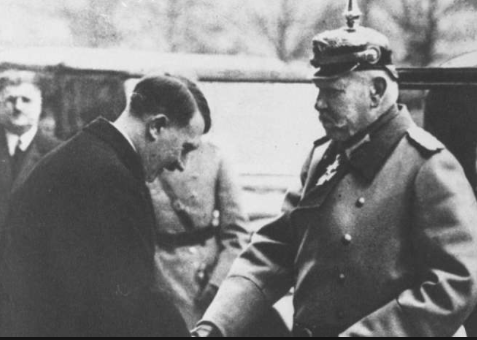
Hindenburg német elnök Adolf Hitlert nevezte ki az ország kancellárává, abban a hitben, hogy az alkancellárnak kinevezett Franz von Papen...
1943. január 31.
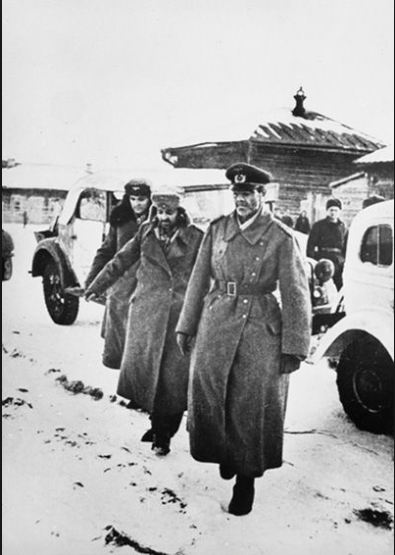
A sztálingrádnál körbezárt 6. Német hadsereg leteszi a fegyvert, Friderich von Paulus vezértábornagy megadja magát.
1943. február 1.
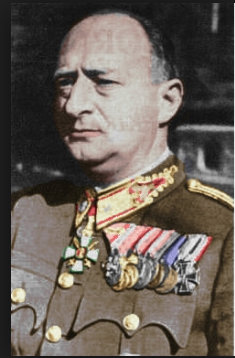
Stomm Marcell altábornagy, a 2. magyar hadsereg III. Hadtestének parancsnoka feloszlatja a parancsnoksága alatt álló egységet.
1943. február 7.
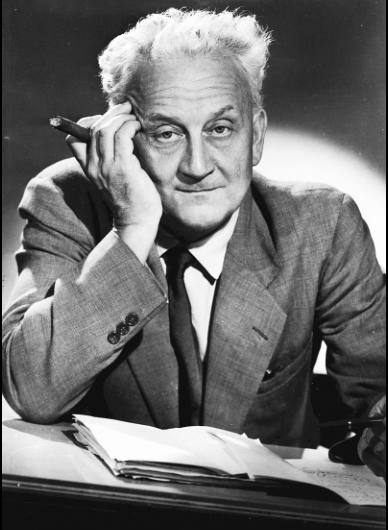
Szent-Györgyi Albert Nobel-díjas magyar orvos a magyar pártok többségének közös támogatását élvezve, Kállay Miklós miniszterelnök felhatalmazásával Isztambulba utazik, a brit...
1943. február 11.
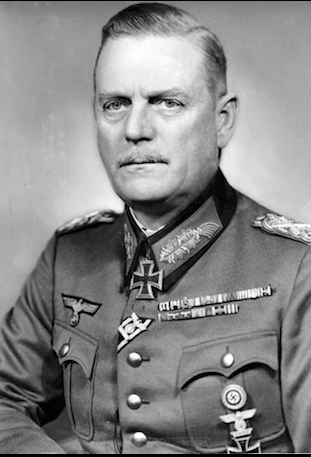
Wilhelm Keitel tábornagy három magyar megszállóhadosztály küldését kéri Szerbiába.
1920. február 16.
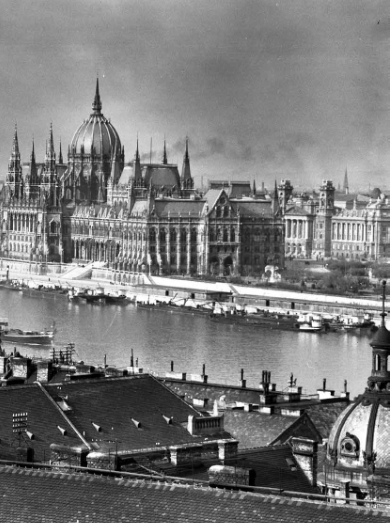
Összeül a Magyar Parlament.
1943 március
Barcza György volt londoni magyar követ vállalja, hogy a Kállay-kormány félhivatalos megbízásával Svájcban Magyarországot képviselje a britekkel folytatott titkos különbéke-tárgyalásokon.
1943 március 12.
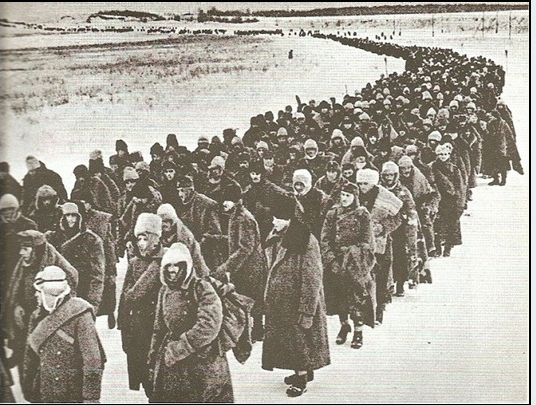
Jány Gusztáv a 2. magyar hadsereg parancsnoka 30. számú hadparancsa gyakorlatilag felülírja a január 24-it.
1943 március
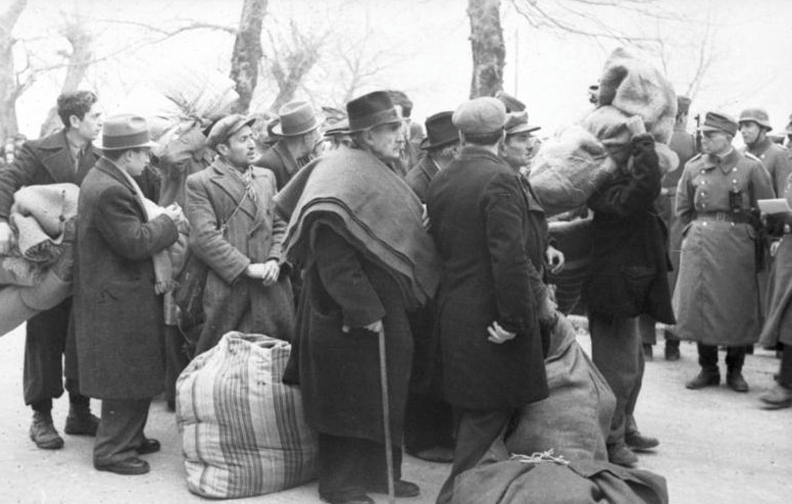
Dieter Wisliczeny és Alois Brunner SS századosok felügyelete alatt megkezdődik a görögországi zsidók deportálása.
1921. március 27 – április 5.
IV. Károly király első sikertelen visszatérési kísérlete Magyarországra, királyi jogai gyakorlásának visszaállítására.
1943.március 30.
A magyar kormány elutasítja a német vezetés ajánlatát magyar megszálló erők küldéséről Szerbiába, de hozzájárul a Szovjetunió területén lévő megszálló...
1943. április 2. – 5.
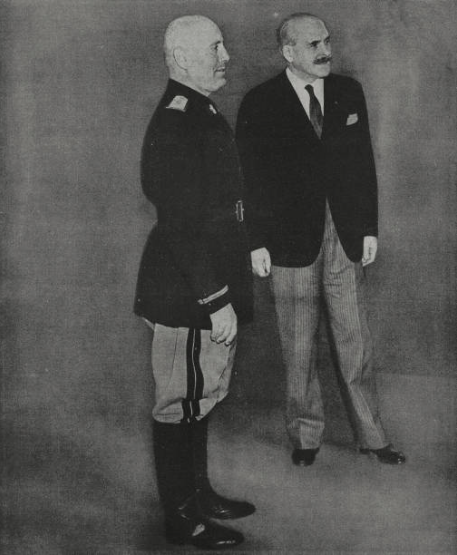
Kállay Miklós miniszterelnök Rómába látogat, ahol találkozik Benito Mussolinival, illetve Ettore Bastianini külügyi államtitkárral, és audiencián vesz részt a Vatikánban...
1943. április 13.
Németország hivatalosan is bejelenti, hogy Szmolenszktől nem messze, Katyn térségében nyolc tömegsírt tárt fel, melyekben több ezer kivégzett lengyel tiszt...
1943. április 16. – április 18.
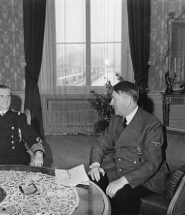
Horthy kormányzó a Salzburg melleti Klessheimbe látogat, ahol Hitler ingerült követeli tőle a Kállay-kormány leváltását, s a zsidó kérdés megnyugtató...
1943. április 19.
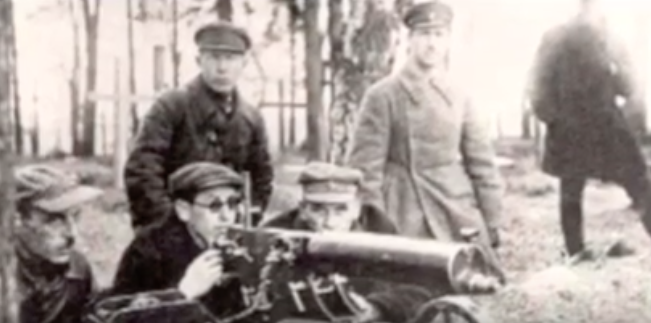
Az SS megkezdi a varsói gettó felszámolását. A gettó falain belül ekkora már szervezett formában létezik az ellenállás. Az első...
1943. május 7.
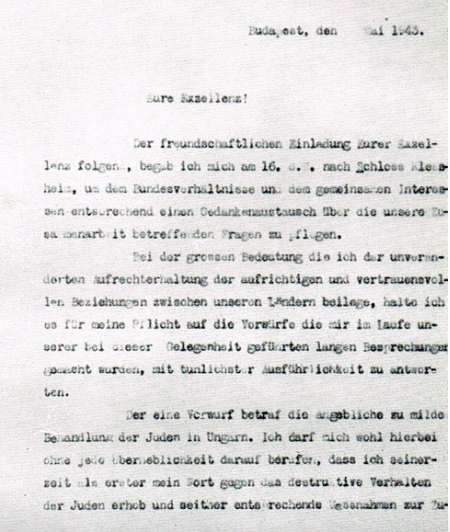
Horthy Miklós kormányzó Hitler klessheim-i vádjaira vonatkozó ellenvetéseit összefoglalva levélben fordul a führer-kancellárhoz, melyből egyrészt megmutatkozik Horthy jogkorlátozó, fajvédő, és...
1943. május 12 – 25.
Churchill Washingtonba látogat, hogy két hetes tárgyalássorozaton vegyen részt Roosevelt elnökkel. Megegyeznek a szicíliai támadás, s a normandiai partraszálllás dátumában....
1943. május 17.
Nagy Vilmos honvédelmi miniszter – tartva a Waffen SS toborzások méretétől – utasítja a toborzóbizotssgába delegálandó magyar tagokat, hogy magyar...
1943. május 12 – 25.
Churchill Washingtonba látogat, hogy két hetes tárgyalássorozaton vegyen részt Roosevelt elnökkel. Megegyeznek a szicíliai támadás, s a normandiai partraszálllás dátumában....
1943. május 21.
Kovács Gyula vezérőrnagy jelentése a 2. hadsereg veszteségeiről: 1943. január 1-jén élelmezési létszám 194 334 fő; szabadságon kb. 10 ezer...
1943. június 1.
A klessheimi megállapodás alapján hatályba lép a népi németek második toborzási hullámát engedélyező kormányrendelet, mely az 1942-ik évitől eltérően a...
1943. június 03.
Algírban az 05.30-án kezdődött konferencia végén megalakul a Francia Birodalom kormányaként működő Francia Nemzeti Felszabadítási Bizottság (CFLN). Elnökei Charles de...
1943. június 13.
A szélsőjobboldali támadások hatására lemondott Nagybaczoni Nagy Vilmos honvédelmi miniszter helyére Horthy Miklós kormányzó a hozzá hű, de a német...
1943. július 10.
Virradat előtt megkezdődik a „Husky” fedőnevű hadművelet, 150 ezer ember, 3 ezer hadihajó, és 4 ezer repülőgép bevetésével a szövetségesek...
1943. július 19.
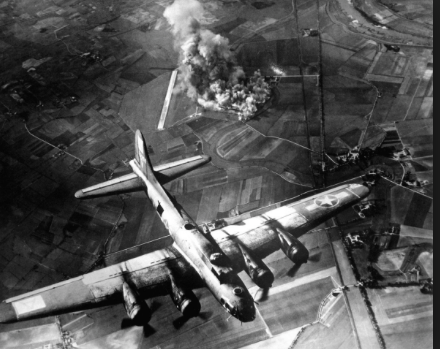
A szövetséges légierők Rómát bombázzák.
1943. július 22.
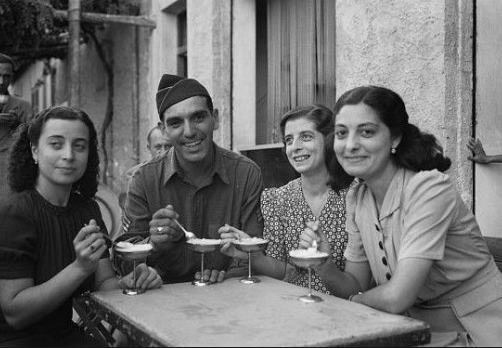
Amerikai csapatok foglalják el Palermót.
1943. július 24.
A Hadbalépés óta először összeülő Fasiszta Nagytanács egy bizalmi szavazáson 19:7 arányban gyakorlatilag leváltja Mussolinit. Másnap, július 25-én III. Viktor...
1943. július 25.
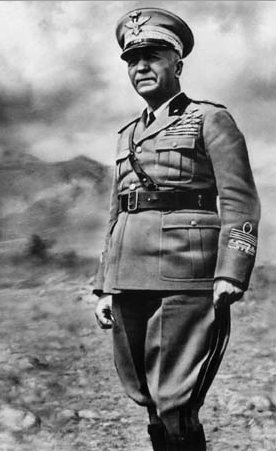
III. Viktor Emmanuel király bejelenti Mussolininek, hogy Pietro Badoglio az új miniszterelnök. Bár a Duce nem mutat ellenállást, a carabinierik...
1943. július 28.
Pietro Badoglio miniszterelnök feloszlatja az Olasz Fasisztapártot, s bár biztosítja Németországot fegyverbarátságáról – béketárgyalásokat kezdeményez a szövetségesekkel.
1931 augusztus eleje
Franciaország 5 millió frankos gyorssegélyt bocsát Magyarország részére, ez azonban már későn érkezik.
1943. augusztus 19.
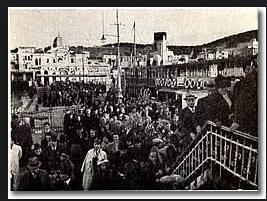
Veress László Isztambulban angol külügyi köröknek felajánlja – a korábbi megkötések értelmében - Magyarország feltétel nélküli megadását.
1943. augusztus 22.
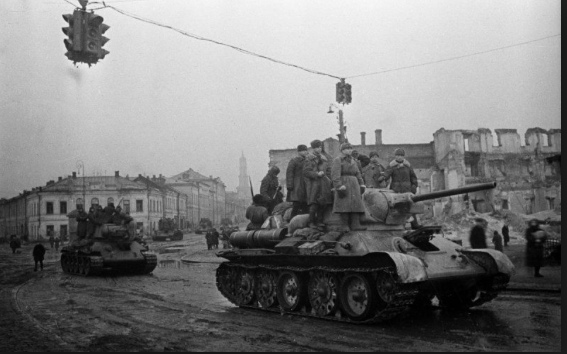
Szovjet csapatok visszafoglalják Harkovot.
1943. augusztus 24.
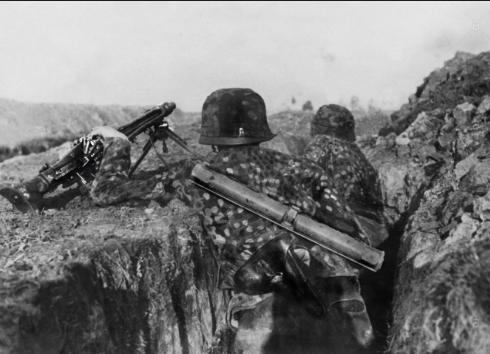
Szovjet csapatok foglalják vissza Szmolenszket.
1943 szeptember eleje – október 1.
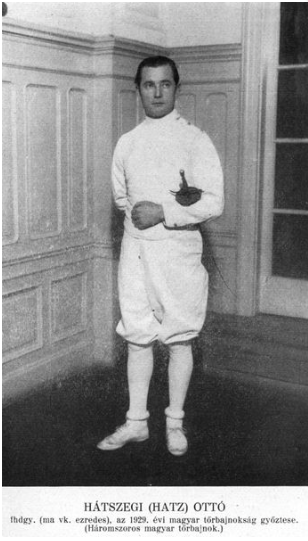
Hatz Otto ezredes a VKF 2 osztályának ( Katonai Hírszerzés és Elhárítás) képviseletében Isztambulba utazik. Október 1-én kap egy OSS-el...
1943. szeptember 3.
Aláírják Olaszország feltétel nélküli fegyverszüneti kapitulációját.
1943. szeptember 9 – 10-re virradó éjszaka,
Veress László magyar külügyminisztériumi segédtitkár aláírja az előzetes fegyverszüneti megállapodást Nagy-Britanniával, melynek értelmében Magyaroszág, amint szövetséges csapatok érik el határait,...
1943. szeptember 12.
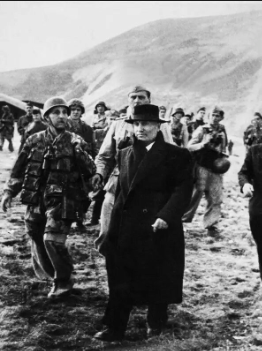
Otto Skorzeny SS Hauptsturmführer és különleges egysége „Tölgyfa” ( Eiche) hadművelet keretében kiszabadítja a Grand Sasso hegyi Hotel Campo Imperatore-ben...
1943. szeptember 17.
Megkezdődik a Magyar Megszálló Erők parancsnokságának kivonása Kijevből.
1943. szeptember 17.
A Magyar Megszálló Erők Parancsnoksága feladja kijevi főhadiszállást.
1943. szeptember 18.
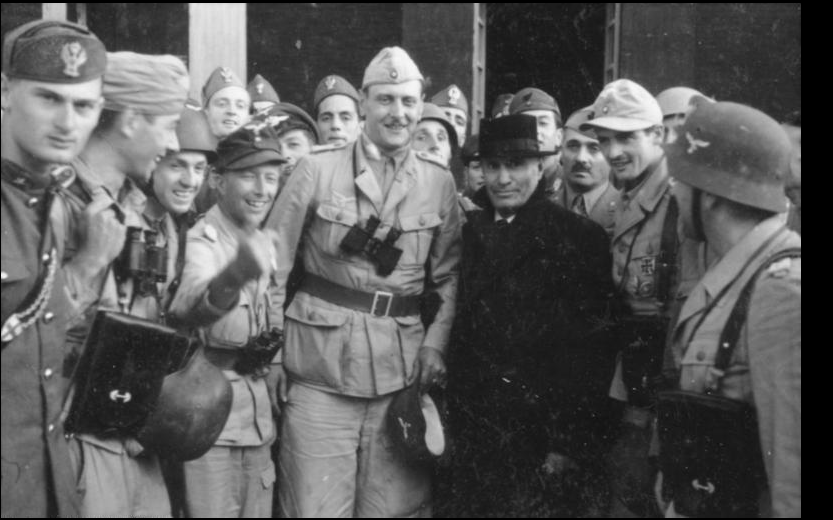
Mussolini Münchenből rádióbeszédet tart, melyben kikiáltja a Saló székhelyű, észak-itáliai Olasz Szociális Köztársaságot., majd rövidesen elfoglalja a német bábállam elnöki,...
1943 szeptember 29.
Magyarország felveszi a diplomáciai kapcsolatot a Salói Szociális Köztársasággal, de nem szakítja meg a viszonyt az Olasz Királysággal.
1943. október 13.
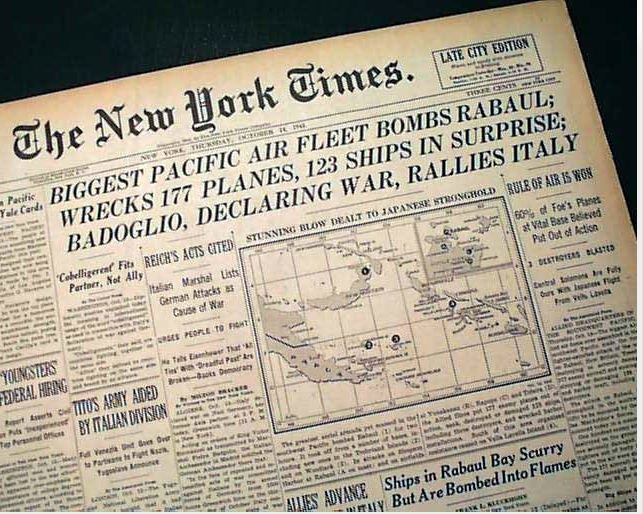
Az Olasz Királyság hadat üzen Németországnak.
1943. november 10.
Elkészül a módostott Margerethe terv, a végrehajtást azonban az OKW bizonytalan időre elhalasztja, tekintve, hogy a kijelölt egységek a Déli-Hadseregcsoport...
1943. november 28. – december 1.
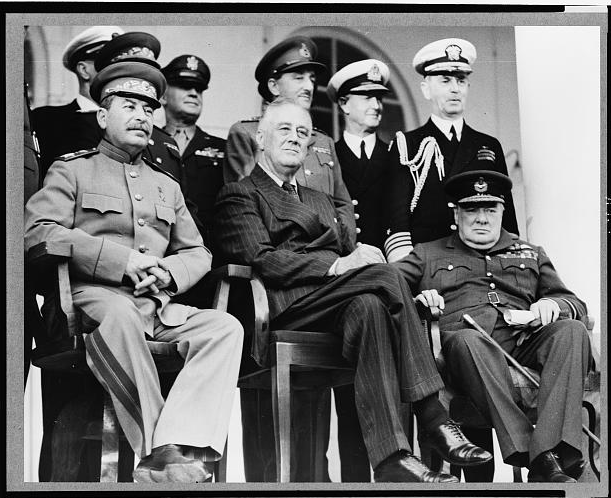
Churchill-Roosevelt és Sztalin találkozója Teheránban.
1943. szeptember 30.
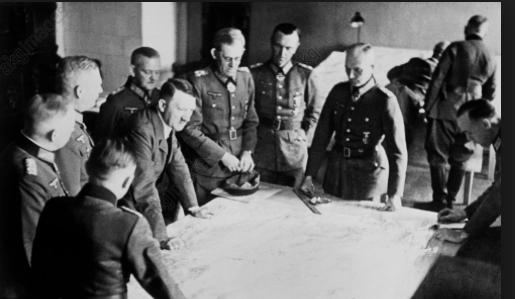
Az OKW előterjeszti a Hitler kérésére kidolgozott Margarethe ( Később Margharete I. nevezetű) tervezetet Magyarország megszállásáról.
1943. december 10.
Edmund Veesenmayer a Német Birodalom gazdasági tanácsadója Magyarországra utazik, ahonnan 50 oldalas jelentést küld Berlinbe. A megszállás ellenében a kormányzóval...
1943. december 14.
A Honvéd Vezérkar Főnökének Bírósága újra előveszi az újvidéki vérengzés ügyét. A per során az érintetteket –ezúttal Grassy József vezérőrnagyot...
1944. január 6.
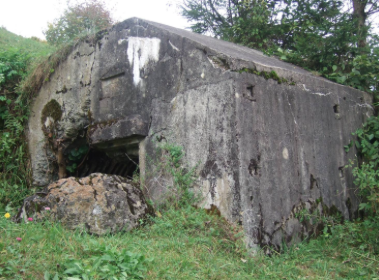
Az 1. Magyar hadsereg elfoglalja állásait a Kárpátokban, az 1940 óta épített Árpád-vonal mentén.
1944. január 8.
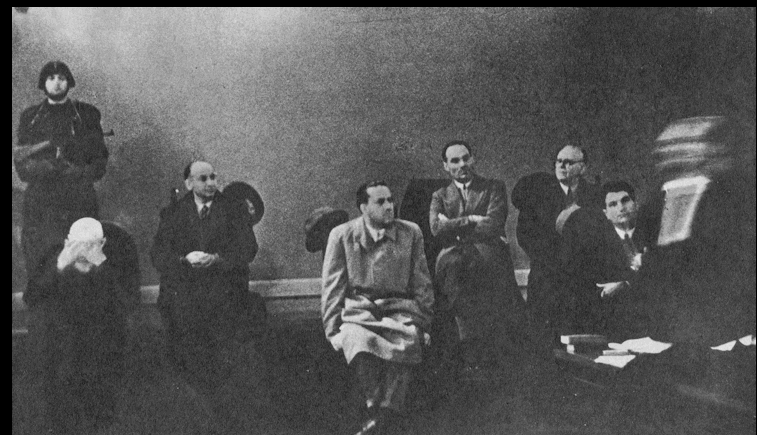
Salói Köztársaság területéhez tartozó Veronában tárgyalássorozat kezdődik a volt Fasiszta Nagytanács azon tagjai ellen, akik előző év júliusában a Duce...
1944 január 10
Megkezdi működését ifj. Horthy Miklós vezetésével az ún. Kiugrási Iroda.
1924. január 24.
Megalakul a Magyar Nemzeti Bank
1944.január 24. -
A 2. Ukrán Front, 26-án az 1. Ukrán Front támadást indít a Dnyeper mentén tartott kanyevi német hídfő ellen.
1944. január 27.
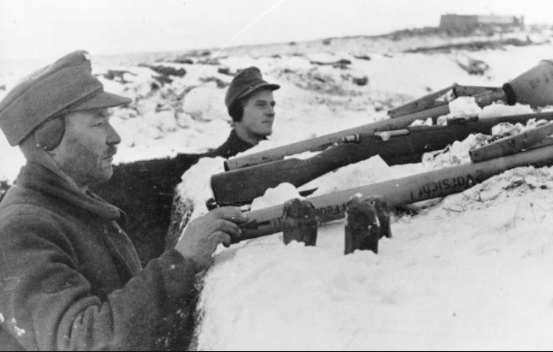
A szovjet Balti, Leningrádi és Volhovi Front megtöri a német Észak Hadseregcsoport Leningrád körüli ostromgyűrűjét. Finn és román titkos kapcsolatfelvétel...
1944. február 2.
Szovjet csapatok foglalják el Luckot és Rovnót.
1944. február 15.
Horthy Miklós levelet ír Hitlernek, melyben többek között kijelenti: „el vagyok szánva arra, hogy a magyar határokat egy esetleges orosz...
1944. február 26.
Bethlen István az Országgyűlés Véderő Bizottságában Javaslatot tesz Dél-Erdély stratégiai célú elfoglalására.
1944. február 26 – 28.
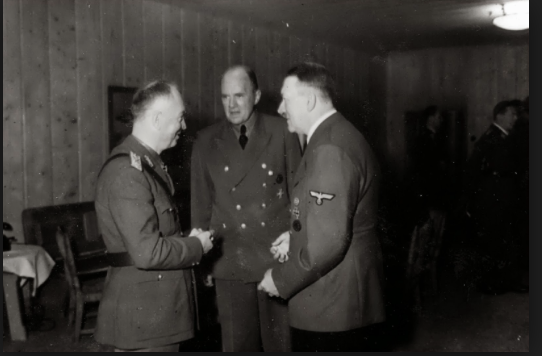
Ion Antonescu marsall, Berlinbe látogat, ahol biztosítja a Führert Románia loyalitásáról. Hitler a látogatás után eltekint a Margarethe II. (...
1944. február 29.
Az OKW kiadja a részletes utasítást Magyarország megszállásának előkészítésére a Délkelet-Főparancsnokságnak, illetőleg részletes tájékoztatást ad a Luftwaffe vezérkara, az SS...
1944. március 7.
Az Abwehr II. osztályának bécsi csoportja véglegesíti a „Trójai faló” akciót, mely a magyarországi német megszállást végrehajtó német csapatok átvonuló...
1944. március 7.
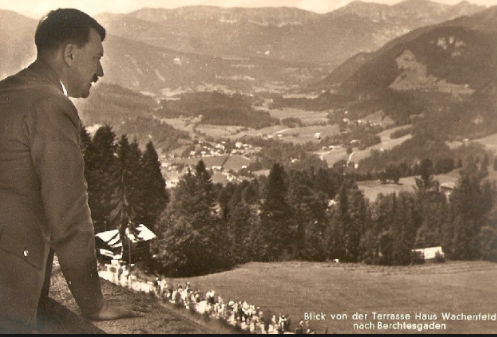
A megszálló csapatok parancsnokának kijelölt tábornokot a führer főhadiszállására rendelik. A találkozó során az eredeti, 1944. Március 18-i, szombati napra...
1944. március 10.
A bécsi magyar konzul jelentése szerint az osztrák főváros közelében 5 német hadosztály gyülekezik és kirakodik.
1944. március 13.
Bajnózcy József vezérezredes a Honvéd Vezérkar Főnökének helyettese magához kéreti Kuno Heribert Fütterer német katonai attasét, és magyarázatot kér a...
1944. március 14.
Német külügyi kapcsolatainak köszönhetően Albrecht főherceg értesült a Margarethe tervről, s találkozót kért a német követtől, Dietrich von Jagowtól. A...
1944. március 15.
Hitler 18-ára Klessheimbe hívja Horthy Miklós kormányzót. Kállay Miklós miniszterelnök a meghívás elutasítását tanácsolja, Szombathelyi Ferenc vezérkai főnök viszont határozottan...
1944. március 16.
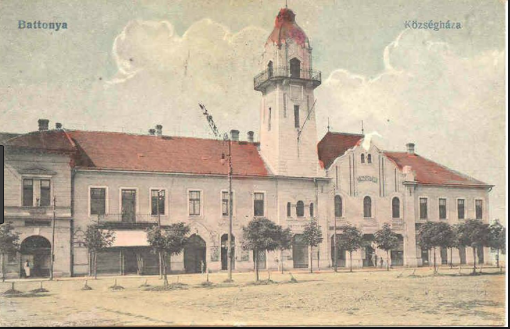
Az OSS ( Office of Stratetig Service, amerikai titkosszolgálati szerv ) a VKF-2 ( Vezérkari Főnökség -2. Osztálya, a magyar...
1944. március 17.
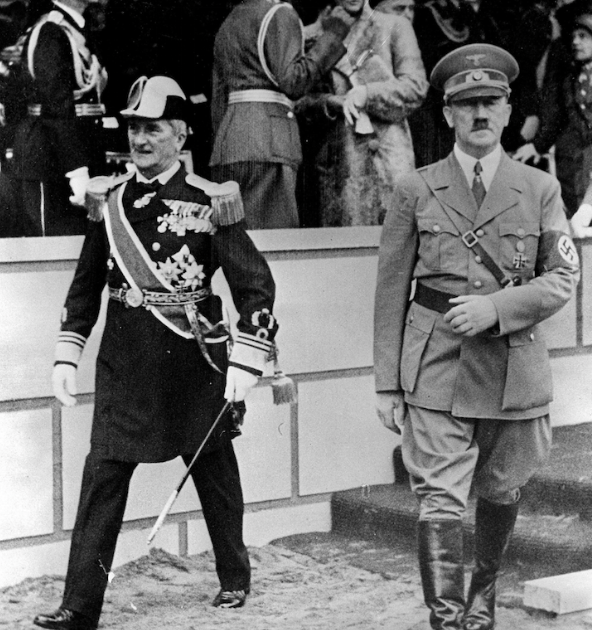
Horthy Miklós kormányzó, Szombathelyi Ferenc a Honvéd Vezérkar Főnöke, és Csatay Lajos hadügyminiszter Klessheimbe utazik, láthatóan hitelt adva annak a...
1944. március 18 – 19
Edmund von Veesenmayer távirati utasítást kap a Német külügyminisztériumból, hogy a kormányzóval együtt utazzon Budapestre. Az elsődleges cél a kormányzó...
1944. március 20-án délelőtt fél tizenkettő környéke
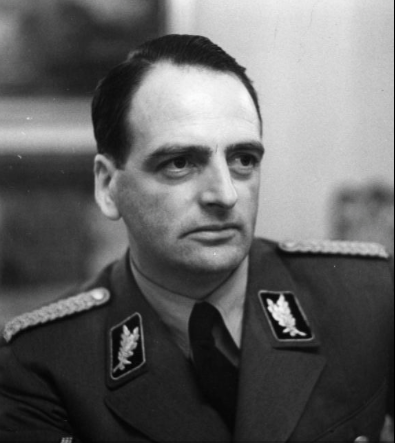
Délelőtt fél tizenkettő környékén Veesenmayer a német követségre rendeli a Magyar Megújulás Pártja több tagját. Rátz Jenőt, Jaross Andort, Mecsér...
1944. március 20. este nyolc:
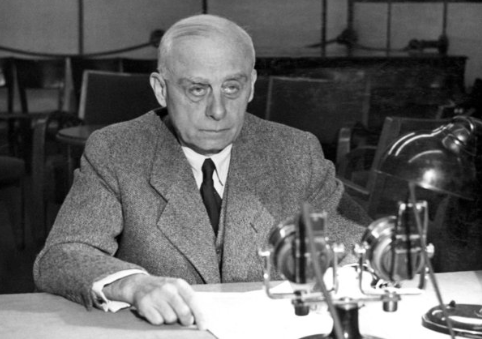
Veesenmayer a német követségre hívatja Sztójay Dömét, s közölte vele, hogy gratulál miniszterelnöki kinevezéséhez. Még azelőtt, hogy a kormányzó kinevezte,...
1944. március 21-22.
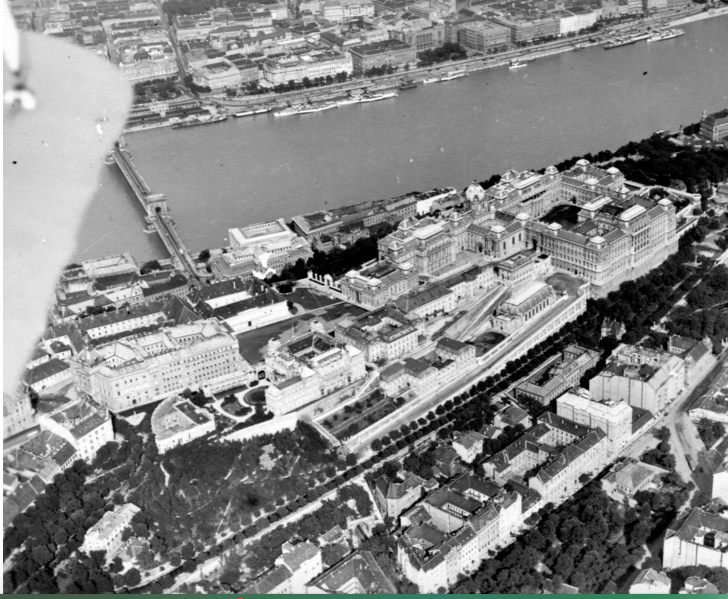
A német külügyminisztérium utasítást ad a „B” terv, Horthy likvidálásának előkészítésére is: Berlinből elrendelik Veesenmayernek: térképezze fel a Vár elfoglalásának...
1944. március 23.
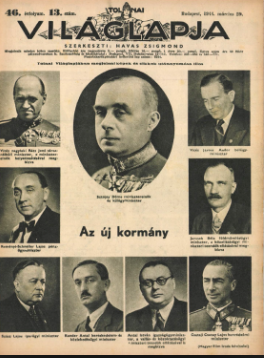
Összeáll a végleges kormánylista. A Magyar Megújulás Pártjának azok a tagjai, akik március 20-án a német követségen Veesenmayer kérésére megjelentek,...
1944. március 29.
Megjelenik az 1140/1944. számú miniszterelnöki rendelet, mely az 1941-es házassági törvény alapján zsidónak számító személyek számára kötelezővé teszi a telefonkészülékek...
1944. március 31.
Megjelenik az 1200/1944 M. E. sz. Rendelet, mely megtiltja az 1941-es házasággi törvények kritériumai alapján zsidónak számító személyek alkalmazását az...
1944. március 31.
Megjelenik az 1210/1944. számú miniszterelnöki rendelet, mely megtiltja az 1941-es házassági törvény alapján zsidónak minősülő személyek közszolgálatban való alkalamazását, továbbá...
1944. március 31.
Megjelenik az 1220/1944 M. E. sz. Rendelet, mely megtiltja az 1941-es házassági törvény kritériumai alapján zsidónak számító személyek filmművészeti és...
1944. március 31.
Megjelenik az 1230/1944 M.E. számú rendelet, mely az 1941-es házassági törvény alapján zsidónak minősülő, gépkocsival bíró személyeket kötelezte gépkocsijuk adatainak...
1944. március 31.
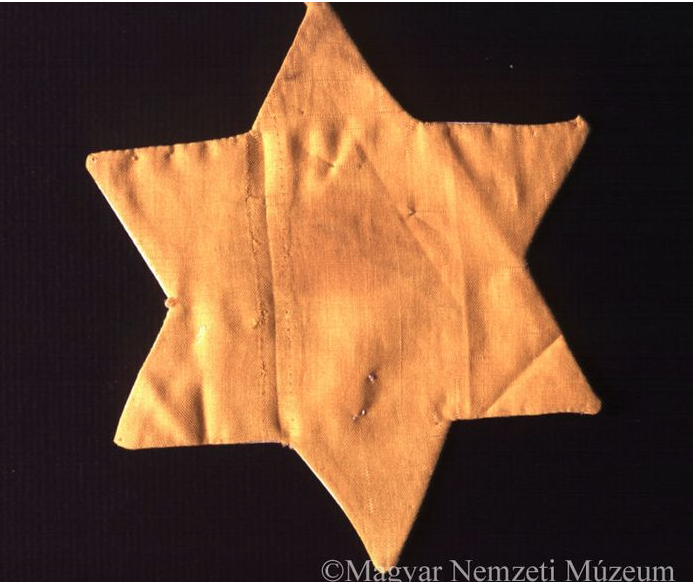
Megjelenik az 1240/1944 számú ME rendelet, mely házon kívül „„10x10 cm átmérőjű, szövet-, selyem-, vagy bársonyanyagból készült, kanárisárga színű hatágú...
1944. április 4.
Hatályba lép az 1600/1944. számú ME rendelet, mely az 1941-es törvény alapján zsidónak minősülő szeméyeket vagyontárgyaik – s ezek forgalmi...
1944. április 3.
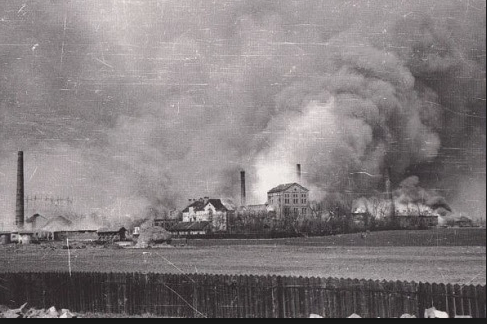
Megkezdődik Magyarország rendszeres angol-amerikai bombázása.
1944. április 7.
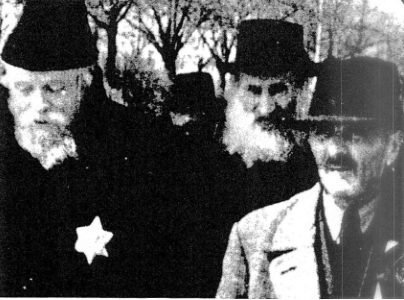
Hatályba lép a 6163/1944. BM VII. res. számú titkos rendelet a zsidók gettóba zárásáról.
1944. április 17-18.
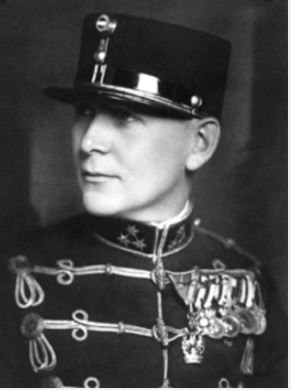
A Sicherheitsdienst letartóztatja Ujszászy István tábornokot, ezzel a magyar hírszerzés de facto megszűnik létezni.
1944. március 21.
Horthy találkozik Sztójayval, megbízza kormányalakítással, és átnyújt neki egy listát az általa javasolt kormánytagokról.
1944. április 28.
Hatályba lép az 1610/1944 M. E. sz. Rendelet, mely az 1941-es házassági törvény alapján zsidónak minősülő személyek zárolt lakásainak igénybevételéről...
1944. április 29.
Magyarországon teljes sajtócenzúrát vezetnek be.
1944. május 4-6.
Egy bécsi megbeszélésen a magyar csendőrség és a német "Sonderkommando" képviselői véglegesítették a magyarországi deportálások menetrendjét.
1944. május 5.
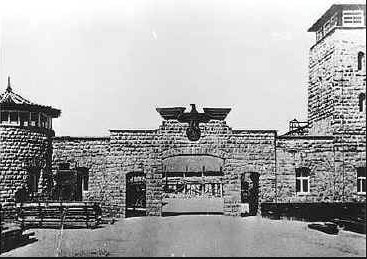
A Mauthausen-i koncentrációs táborba érkezik a budapesti politikai elit első letartóztatási hullám során német őrizetbe került csoportja. Köztük: Apponyi György,...
1944. május 10.
Serédy Jusztinián hercegprímás Sztójay Döme miniszterelnöknél tiltakozik személyesen a deportálások ellen.
1944. május 15.
Megkezdődik az Északkelet-Magyarországon, Kárpátalján és Észak-Erdélyben (I-II. zóna) gettóba tömörített zsidók deportálása. A magyar csendőrség és az Eichmann-kommandó képviselői a...
1944. május 15.
Monte Cassinónál a szövetséges erők áttörik az olasz-német Gusztáv védelmi vonalat.
1944. május 15.
Serédi Jusztinián hercegprímás tiltakozik a miniszterelnöknél a deportálások ellen.
1944. május 20.
Hatályba lép az 500/1944 B. M. sz. rendelet zsidó személyeknek vendéglátó üzemek látogatásában való korlátozása tárgyában.
1944.június 1.
Hatályba lép az 510/1944 B. M. sz. Rendelet, mely az 1941-es házassági törvény alapján zsidónak minősülő személyek számára megtiltja a...
1944. június 4.
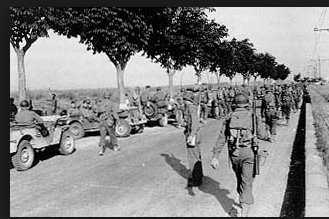
Brit-amerikai-francia csapatok vonulnak be Rómába.
1944. június 16.
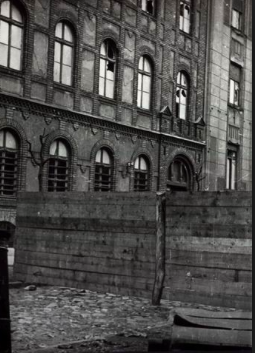
Megkezdődik a délkelet-magyarországi (IV. zóna) zsidóság koncentrálása. Június 29-ig 40.505 személyt összpontosítottak a zóna hét bevagonírozási központjában. Ezek a következok...
1944. Június 17.
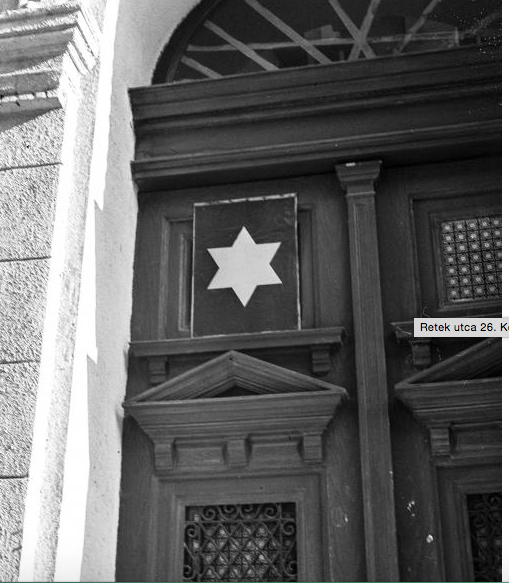
Közzéteszik Budapest polgármesterének rendeletét a fővárosi zsidóság "csillagos házakba" való átköltöztetésérol. A rendelet értelmében a budapesti zsidóknak - számuk mintegy...
1940 június 20.
Franciaország kapitulál.
1944. június 25.
XII. Pius pápa telegramban fordul Horthy kormányzóhoz, azok nevében akik „nemzeti, vagy etnikai hovatartozásuk miat üldöztetnek” arra kérve, hogy „tegyen...
1944. Június 26.
Roosevelt amerikai elnök a svéd követségen keresztül Budapestre juttatott jegyzékében figyelmezteti a magyar kormányt, hogy „Magyarország a háború lezárulta után...
1944.június 26.
Horthy kormányzó a Koronatanácsban a deportálások leállítására kéri a kormányt.
1944. június 29.
Serédi Jusztinián hercegprímás pásztorlevelet szerkeszt a deportálások ellen. Az Igazságügyminisztérium lefoglaltatja a pásztorlevelet.
1944. június 30.
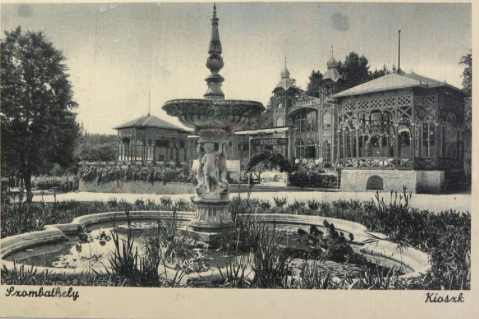
Megkezdődik a Nyugat-Magyarország (V. zóna) gettóiba májusban és júniusban összegyűjtött zsidó állampolgárok átszállítása a következő bevagonírozási központokba: Szombathely, Zalaegerszeg, Pápa,...
1944. június 30.
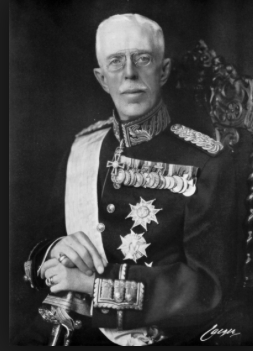
Gusztáv svéd király felhívja Horthy Miklós kormányzót, hogy Magyarország tanúsítson "lovagias, hagyományainak megfelelő" bánásmódot zsidó állampolgáraival szemben.
1944. június 30.
1685 fővel Budapestről elindul Svájcba az a vonat, melyet Kasztner Rezső, a Budapesti Zsidó Segély és Mentőbizottság alelnöke szervez prominens...
1944. Július 1 vagy 3.
Török Sándor, a Keresztény Zsidó Tanács elnöke eljuttatja Horthy kormányzó menyéhez az auschwitz-i jegyzőkönyveket.
1944. július 7.
Horthy kormányzó elrendeli a deportálások leállítását.
1944. július 6-8.
A Budapest környékén (VI. zóna) élő zsidók deportálásával befejeződik a vidéki zsidóság táborba szállítása. Ebből a zónából július 6-8. között...
1944. július 15.
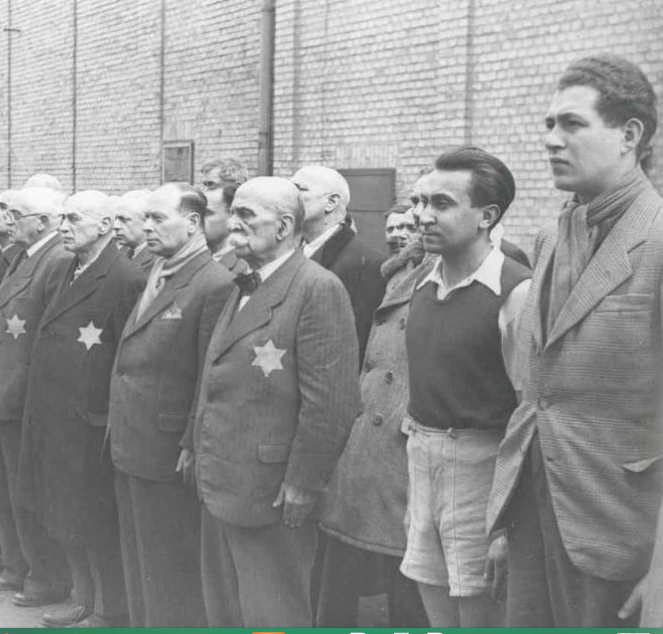
Eichmann a budapesti Keleti pályaudvaron bevagoníroztatja a kistarcsai internálótábor 1500 és a Budapest, Rökk Szilárd utcai kisegítő toloncház 500 zsidó...
1944. augusztus 7.
Horthy kormányzó felmenti tisztéből a vidéki zsidóság deportálásáért felelős Jaross Andor belügyminisztert, Kunder Antal kereskedelmi- és közlekedésügyi, valamint Imrédi Béla...
1944. augusztus 23.
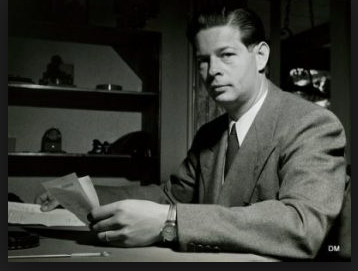
Az azév június 15-én a szovjetekkel fegyverszüneti megállapodás értelmében este 22 órakor I. Mihály román király rádiónyilatkozatban jelenti be Ion...
1944. augusztus 25.
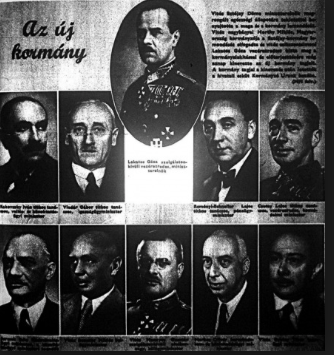
Horthy Miklós kormányzó lemondatja a német megszállás után konszenzusos alapon kinevezett Sztójay Döme kormányfőt, s Lakatos Géza szolgálaton kívüli vezérezredest...
1944. augusztus 26.
Bakach-Bessenyei György berni magyar követ saját kezdeményezésére felveszi a kapcsolatot a svájci angolszász körökkel. Két nappal később ehhez Horthy Miklós...
1944. augusztus 29.
Horthy kormányzó miniszterelnökké nevezi ki, és új kormány alakításával bízza meg Lakatos Géza vezérezredest. Az augusztus 23-i román kiugrás után...
1944. augusztus 31.
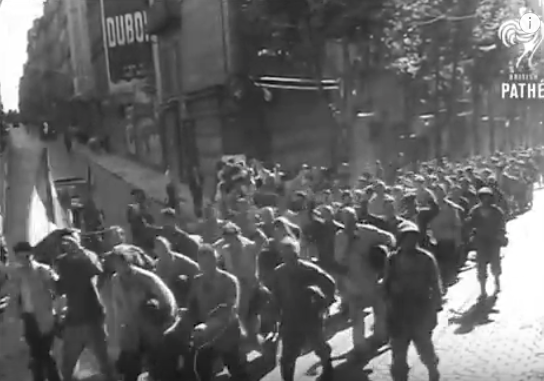
Amerikai-francia csapatok elfoglalják Marseiile-t.
1944. szeptember 2.
Az Amerikai Külügyminisztérium Bothmer Károly berni követ útján tudatja Magyarországgal, hogy fegyverszüneti kérelmével mindhárom szövetséges hatalomhoz egyidőben kell fordulnia.
1944. szeptember 7.
Horthy Miklós elnökletével összeül a koronatananács. ( Kormányzó részvételével megtartott kormányülés.), s bár ismeretes a résztvevők előtt, hogy a szövetségesek...
1944. Szeptember 16.
Báró Bánffy Dániel az Erdélyi Magyar Párt vezetője memorandumban fordul Horthy kormányzóhoz, s fegyverszünet bejelentését kéri.
1944. Szeptember 22.
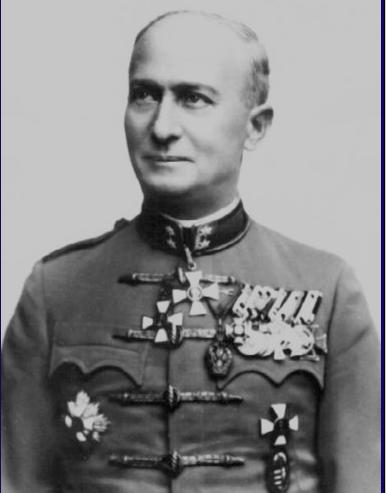
Horthy Miklós megbízásával Náday István vezérezredes a nyugati szövetségesek casertai főhadiszállására repül Charles Helfer Howie néhány héttel korábban hadifogságba esett...
1944. Szeptember 24.
A kormányzónál bizalmas értekezletet tartanak, Horthy Miklós legszűkebb bizalmi körének részvételével: Ifj Horthy Miklós, Ambrózy Gyula, a kabinetiroda főnöke, Vattay...
1944. Október 6.
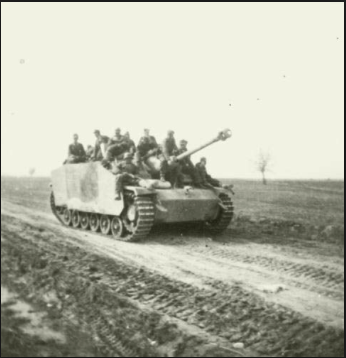
Hajnalban A 2. Ukrán Front Malinovszkij Marsall vezetésével mintegy 800 km-es arcvonalon lendül támadásba Erdélyben.
1944. október 9.
Moszkvában a magyar küldöttség elé terjesztik a fegyverszünet feltételeit.
1944. október 11.
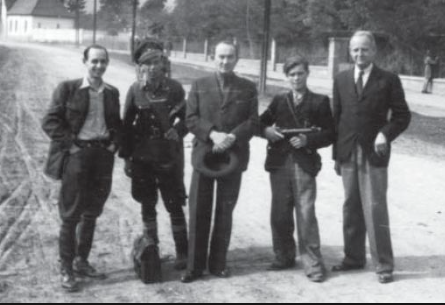
Faragho Gábor vezérezredes Moszkvában aláírja a Magyar Királyság és a szövetséges hatalmak között kötendő fegyverszünet előzetes feltételeit. A kormányzó Vörös...
1944. október 12.
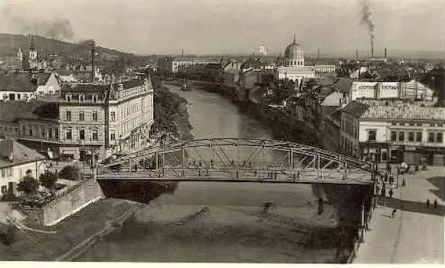
Szovjet csapatok foglalják el Nagyváradot.
1944. október 13-14.
Heves harcok Berettyóújfalú-Mezőtúr térségében.
1944. október 14.
Faragó Gábor vezérezredes táviratban értesítette a Kormányzót, hogy az előzetes fegyverszüneti megállapodás előirásait 48 órán belül végre ell hajtani, máskülönben...
1944. október 15.
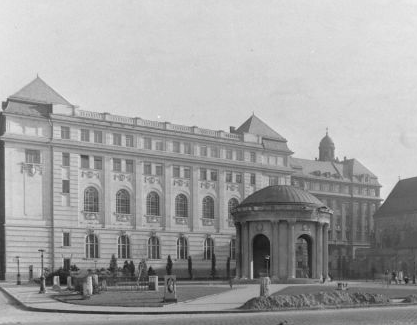
Egy beépített német hírszerző, a jugoszláv partizán tárgyalópartner kicsalja a várból ifj. Horthy Miklóst, akit ezután Otto Skorzeny különleges SS...
1944. Október 16.
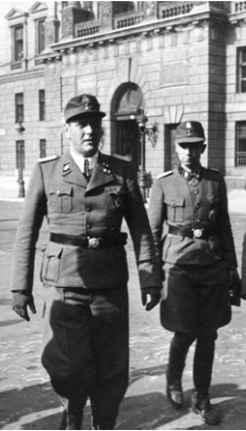
Hajnalban a németek őrízetbe veszik Horthy Miklós kormányzót, Lakatos Géza miniszterelnököt és munkatársaik legszűkebb körét. Reggel 6 órától az 503....
1944 október 18 – 1945 április 29.
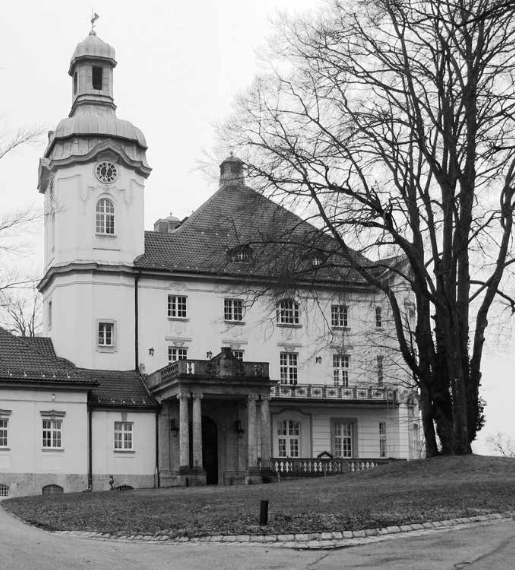
A kormányzó és családja a német állam hadifoglyaként él Schloss Hirschberg kastélyában, Bajorországban
1945 május 1 .
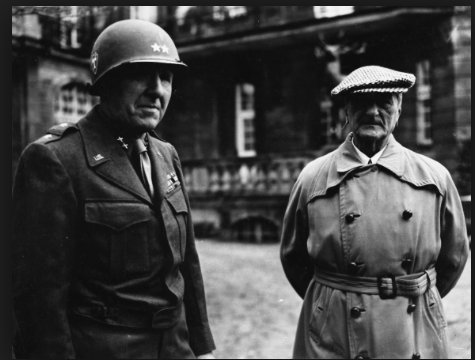
Horthy Miklós amerikai vizsgálati fogságának kezdete.
1945. május 8.
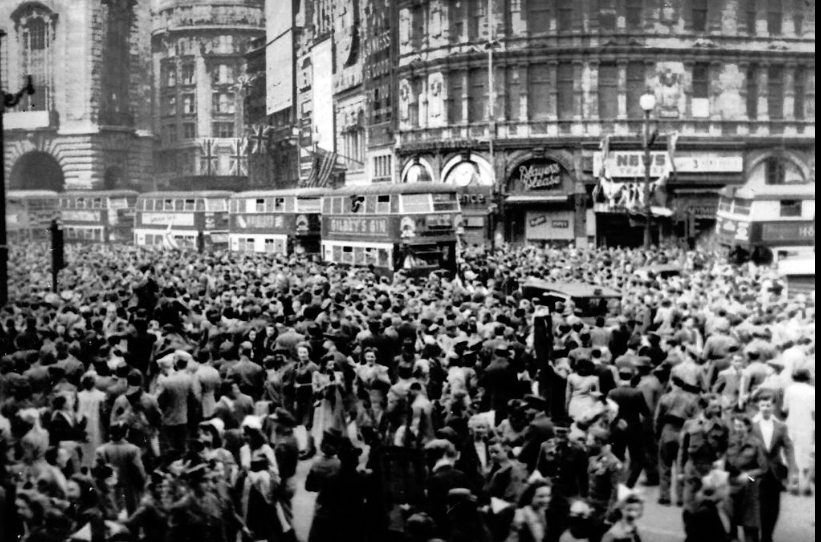
Győzelem Napja
1945 szeptember 24.
Horthy Miklóst Nürnberge szállítják.
1945. december 1.
A volt kormányzó több, mint egy év után újra találkozik fiával, Miklóssal.
1945. december 17.
Horthyt elegendik Nürnbergből.
1948. december 27.
A Horthy család az Anna C tengerjáró hajó fedélzetén Portugáliába költözik.